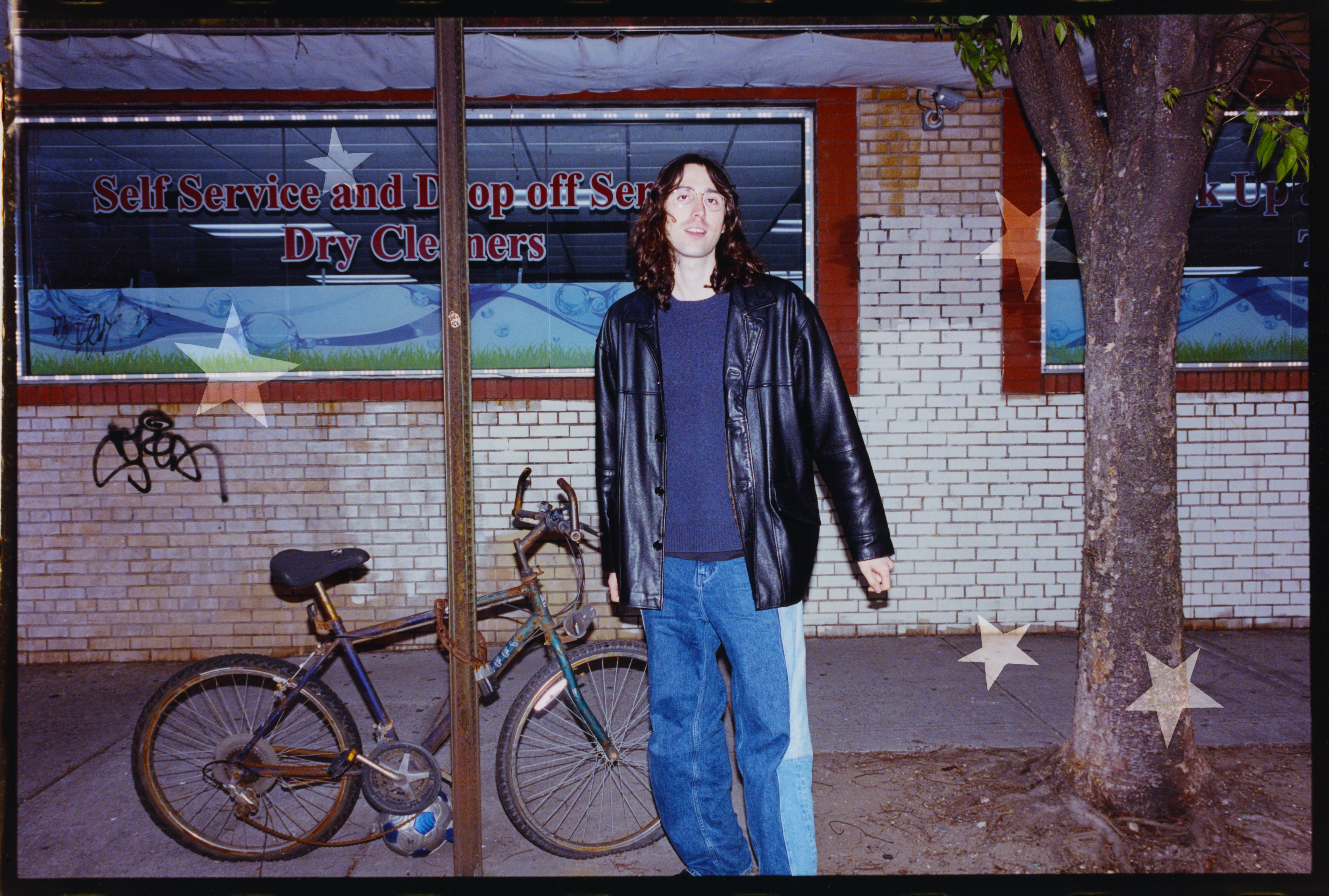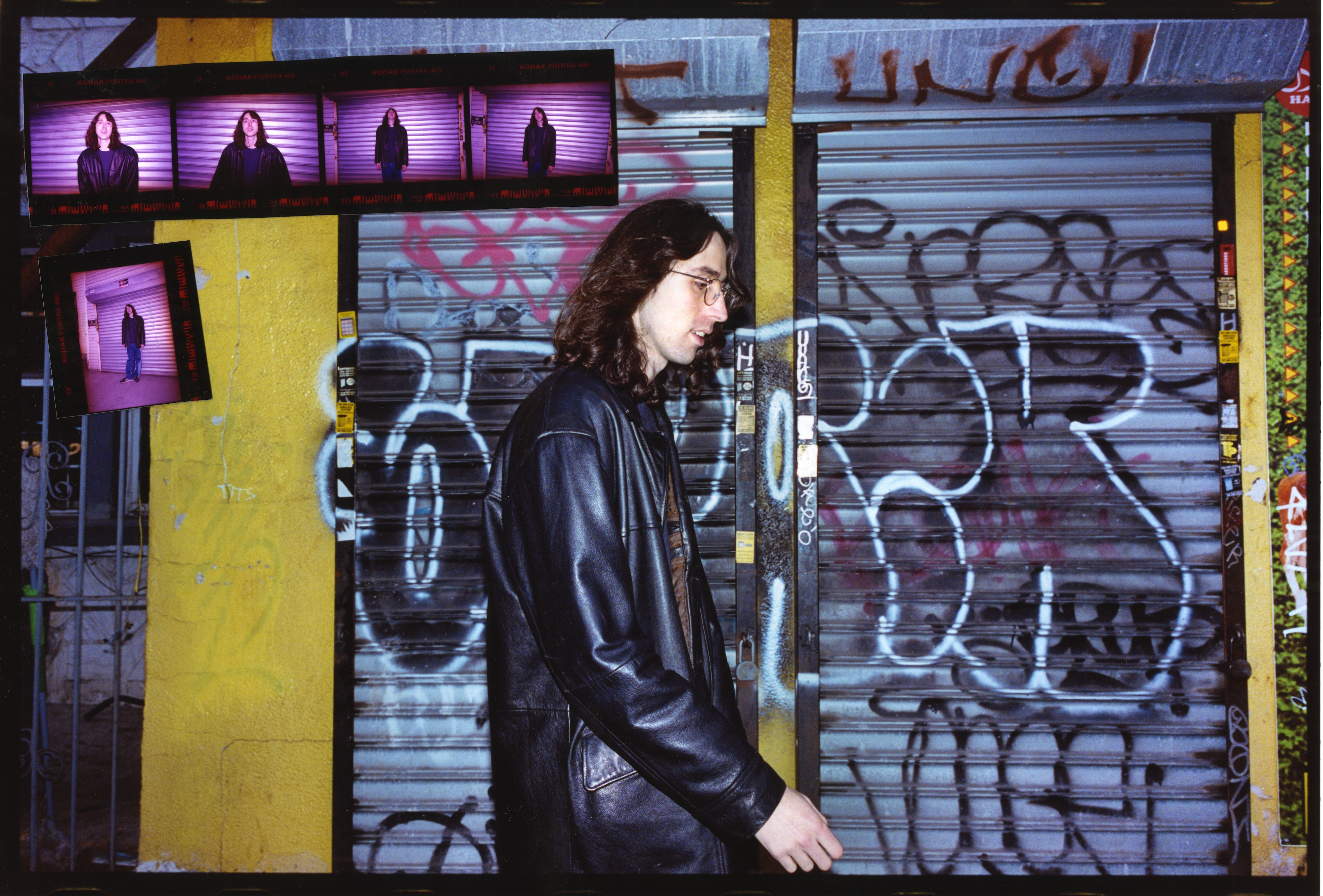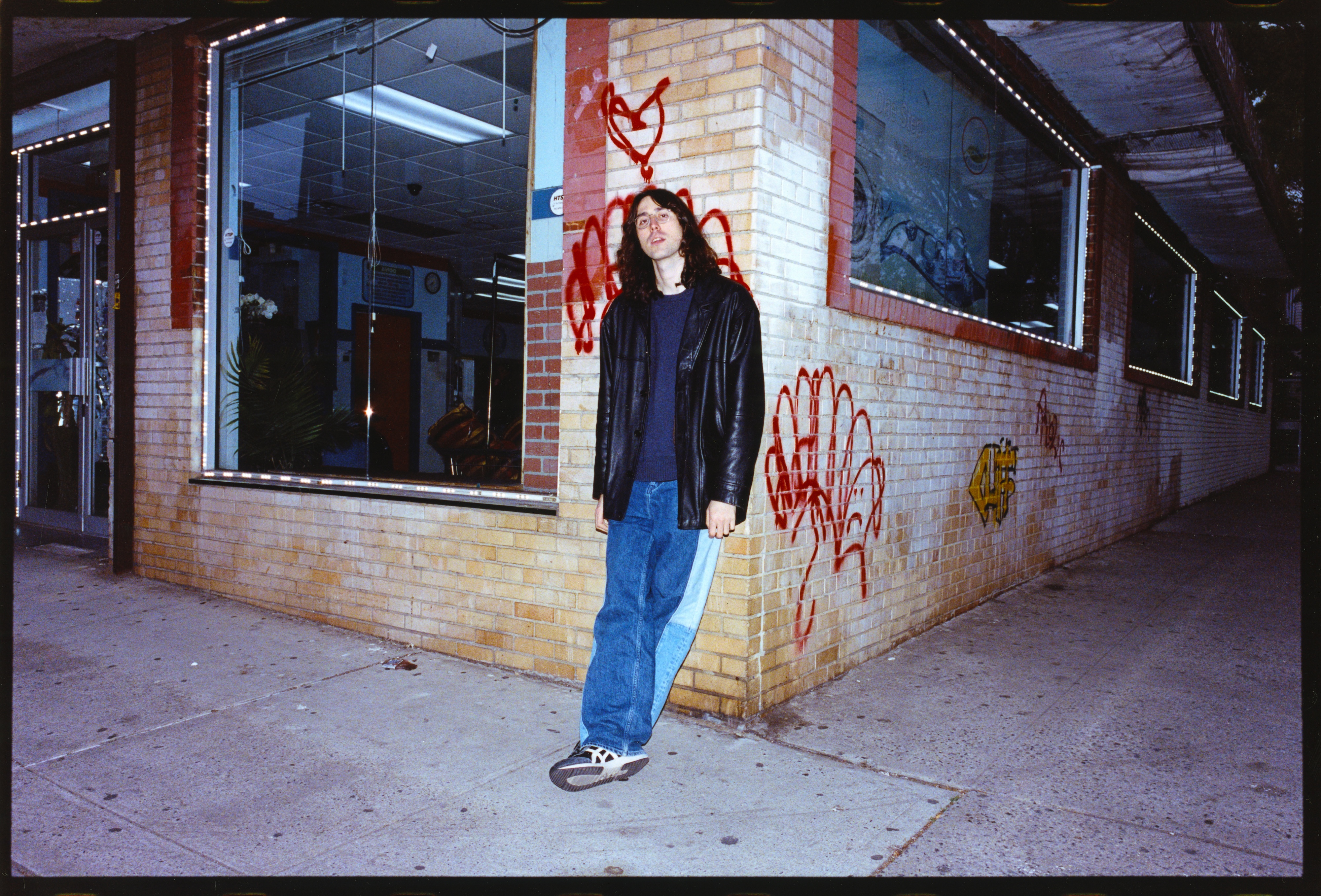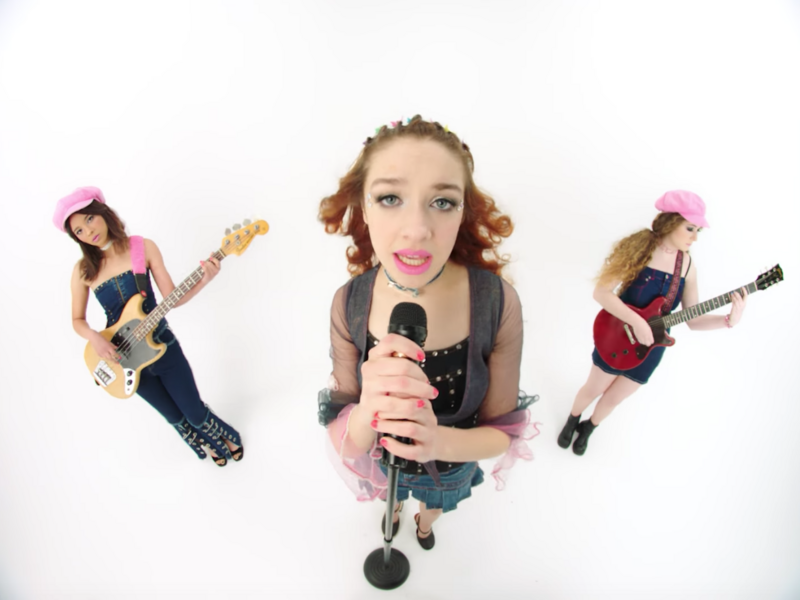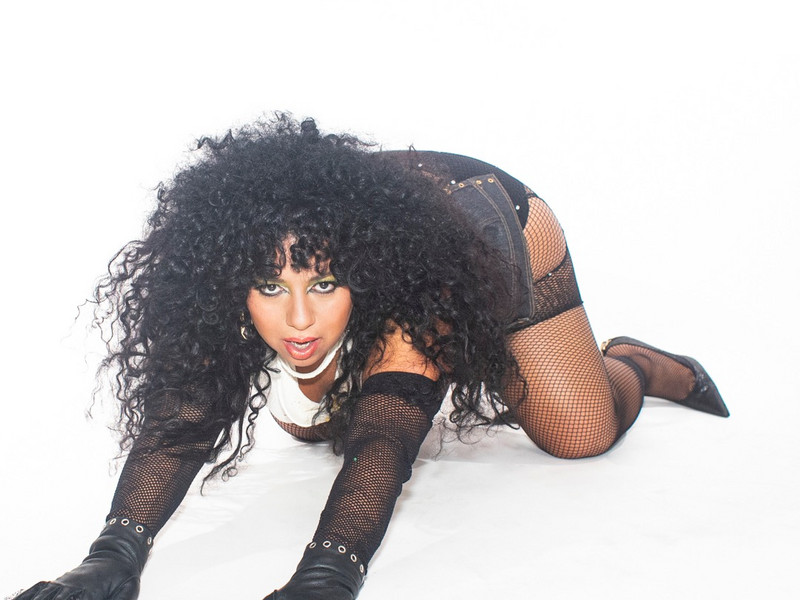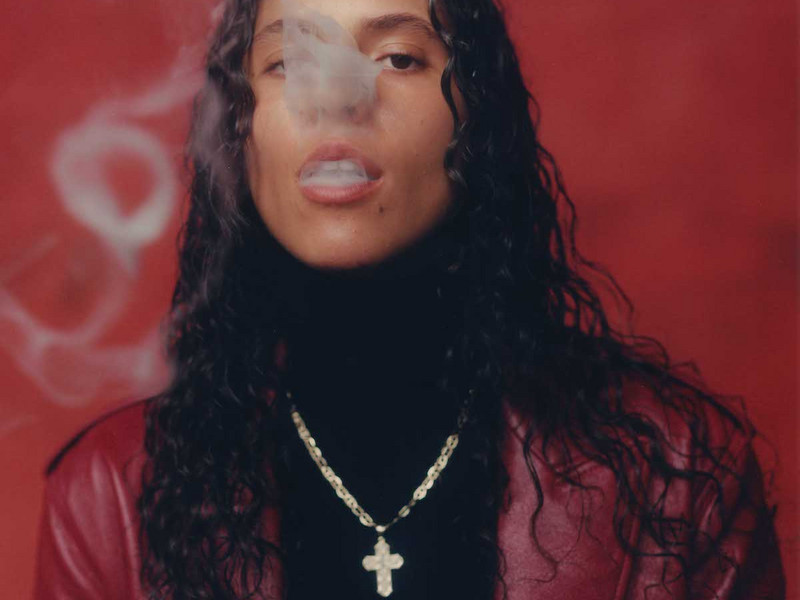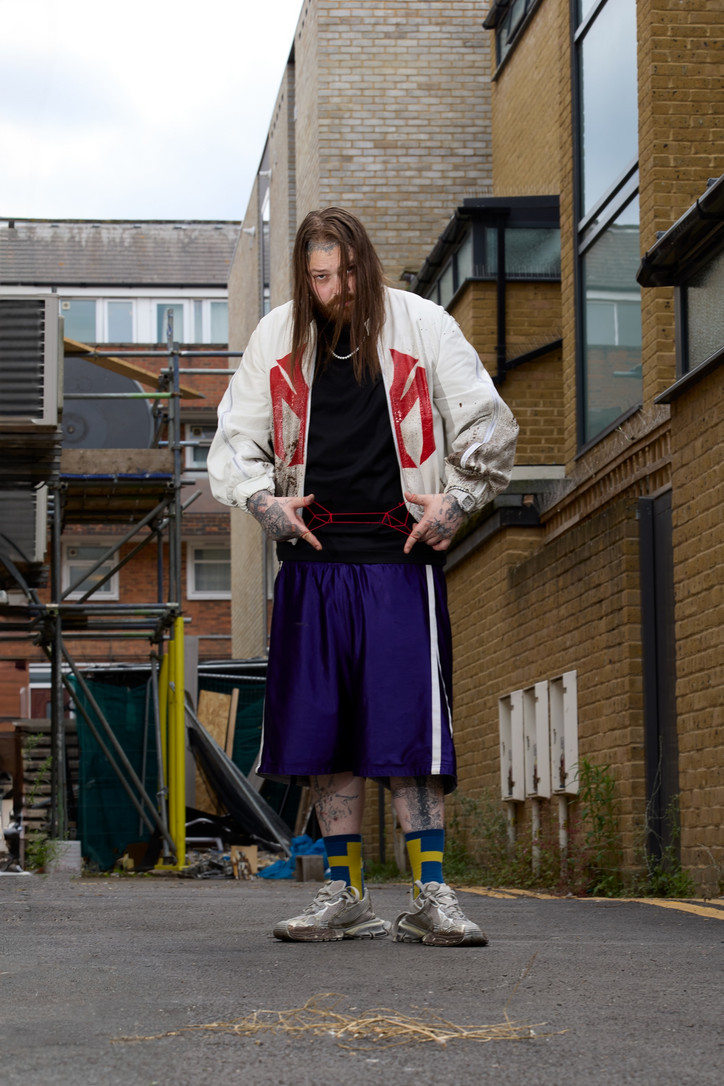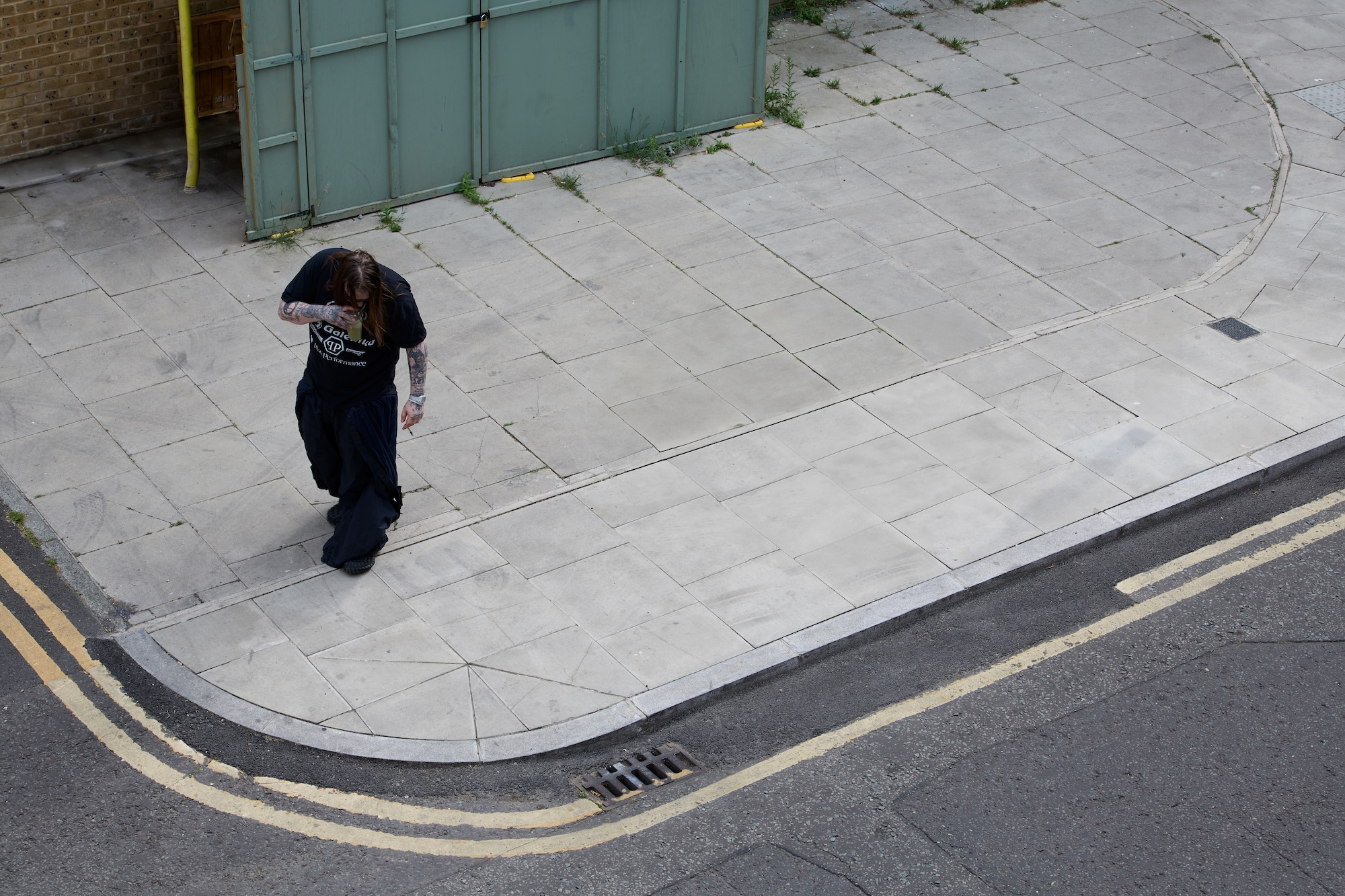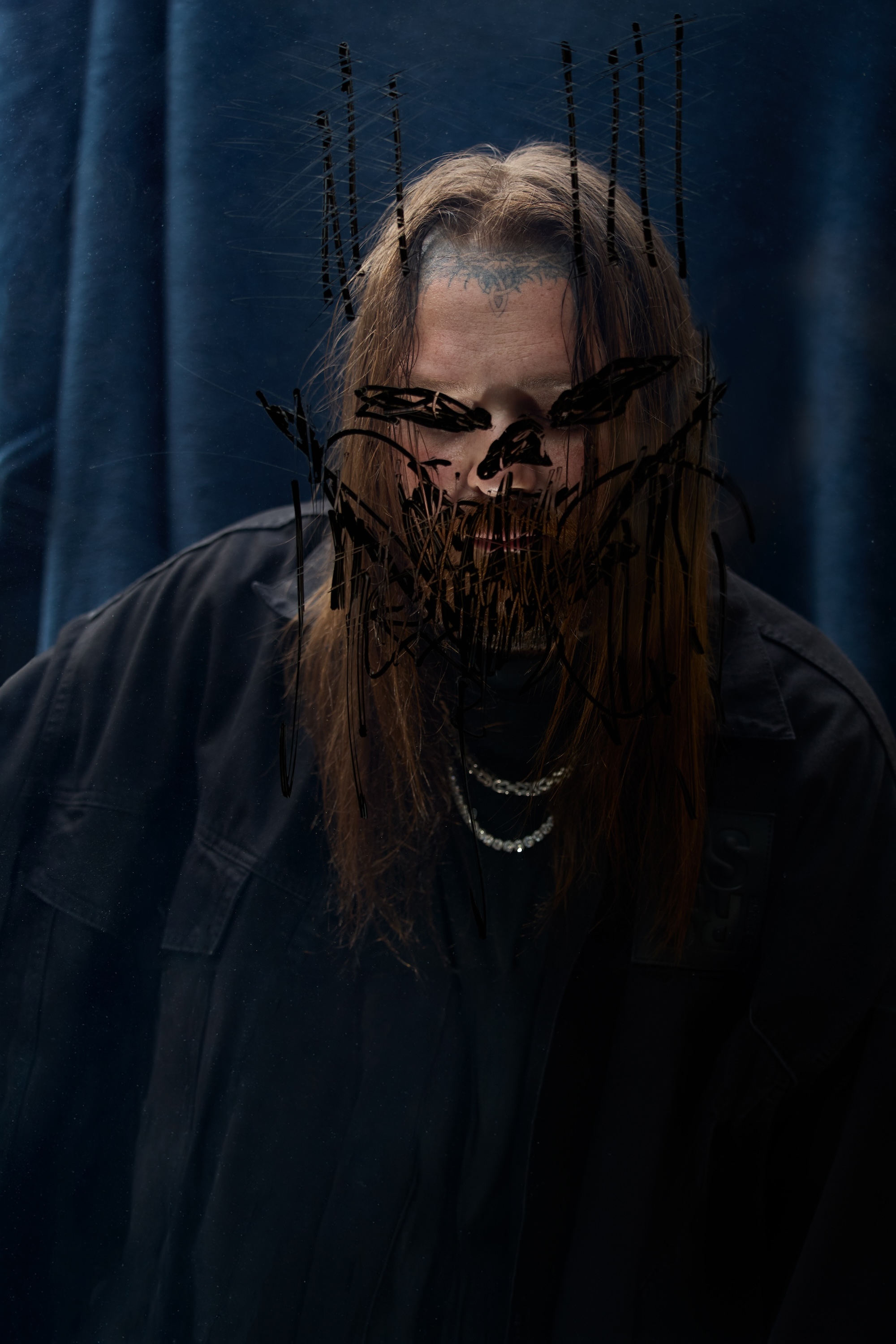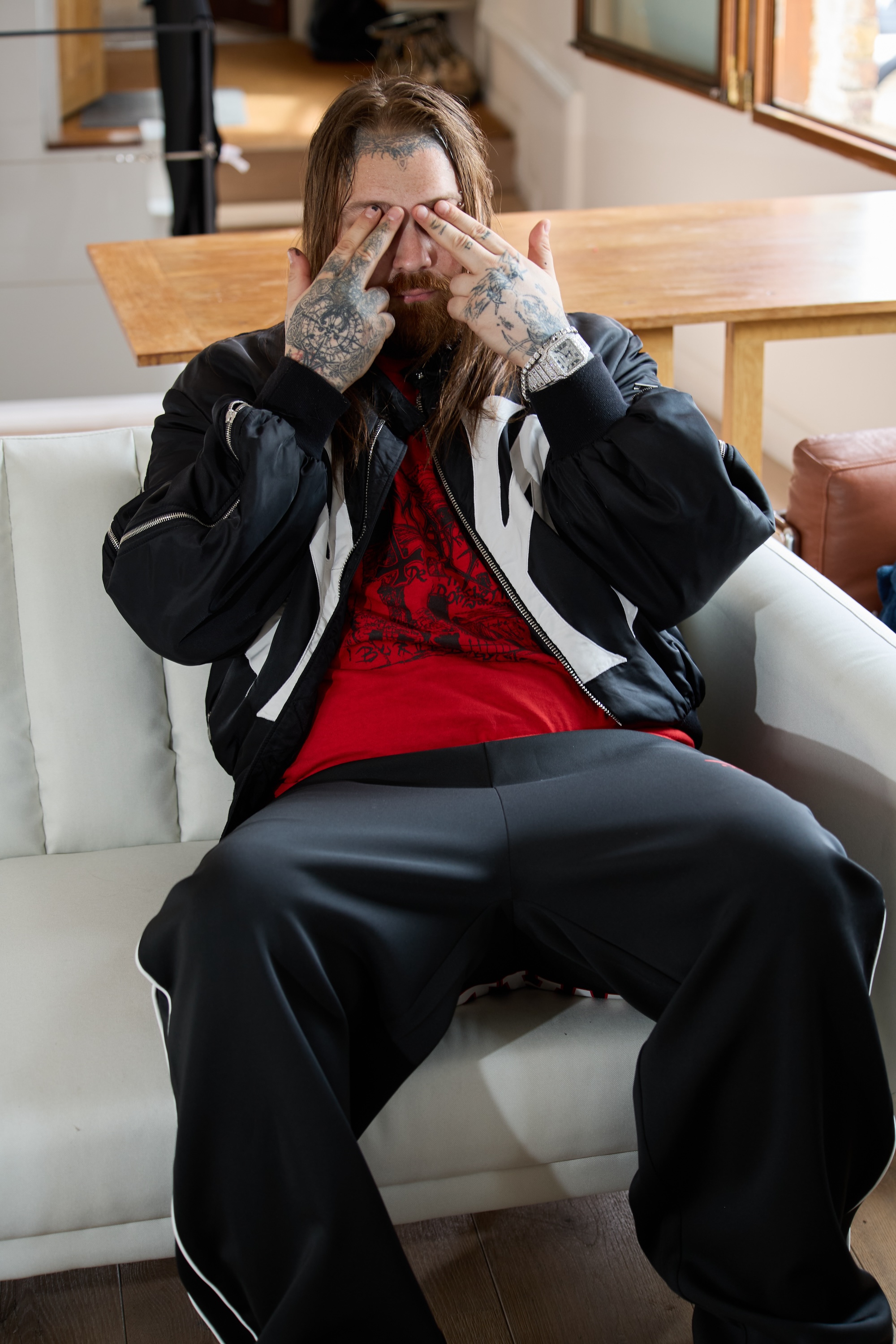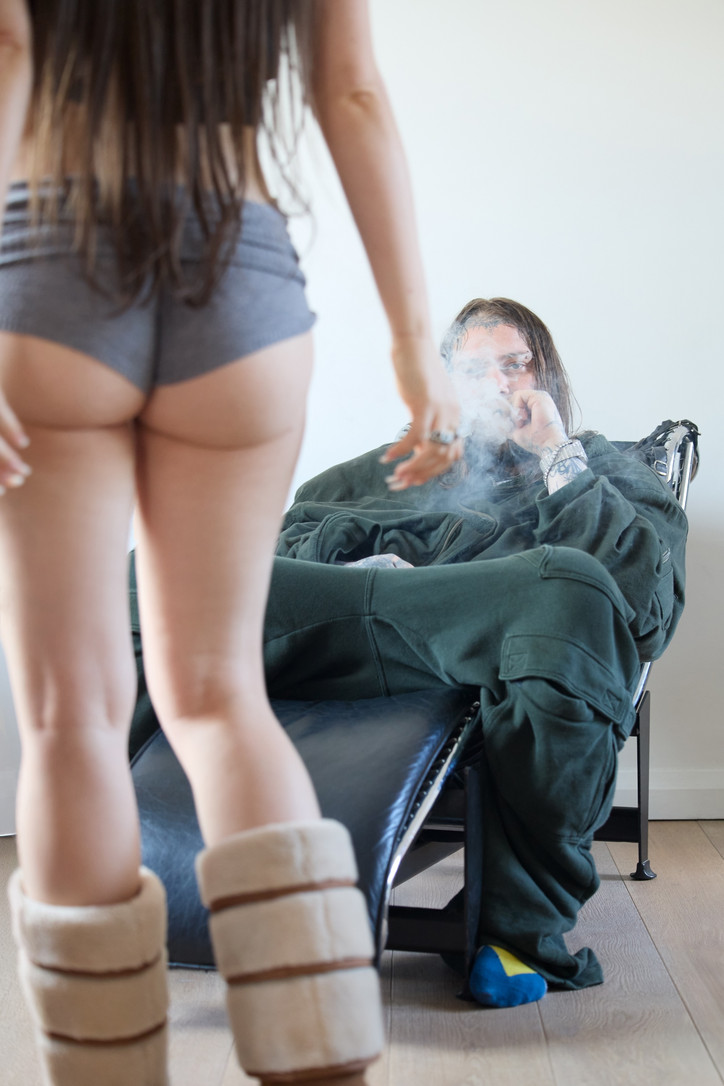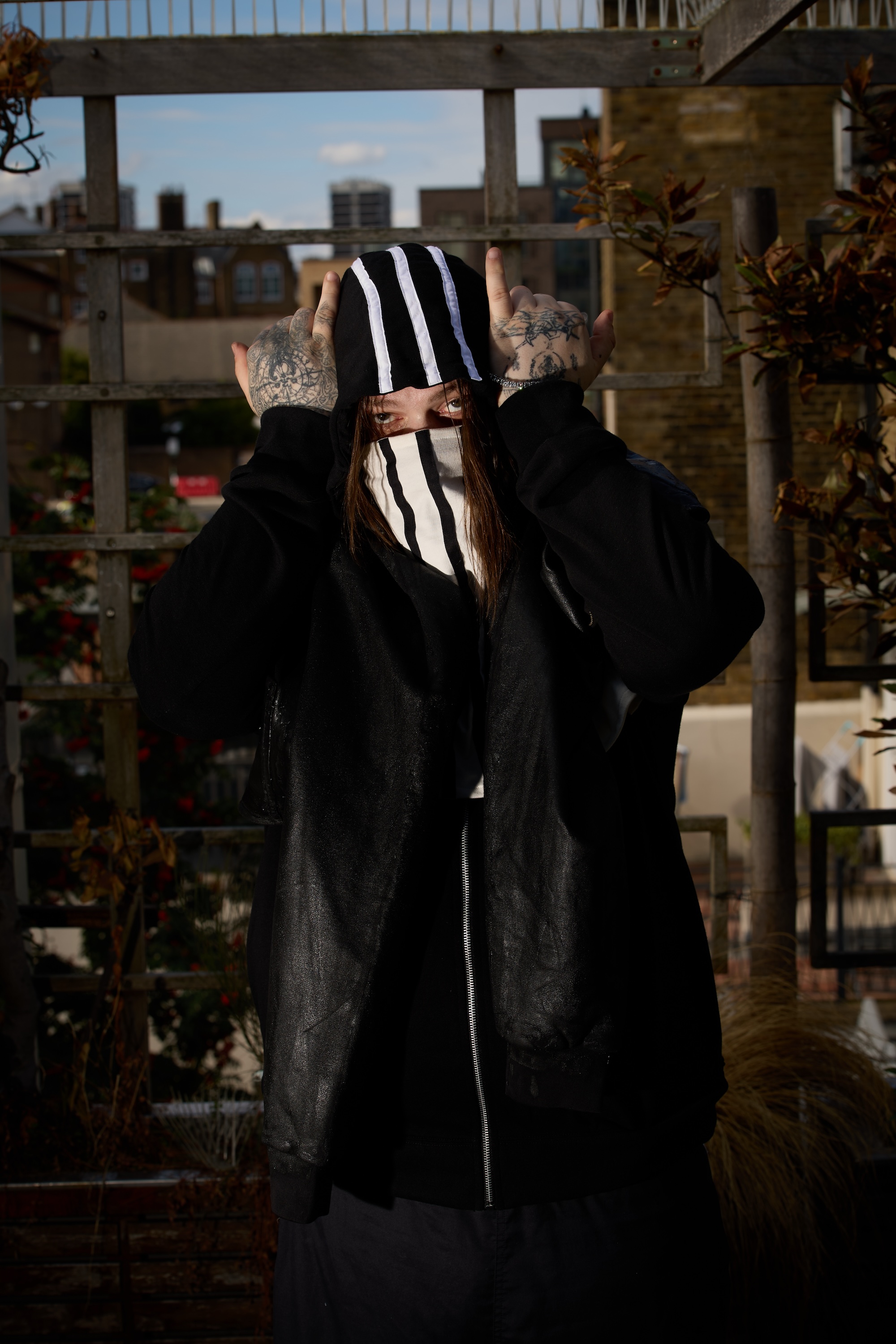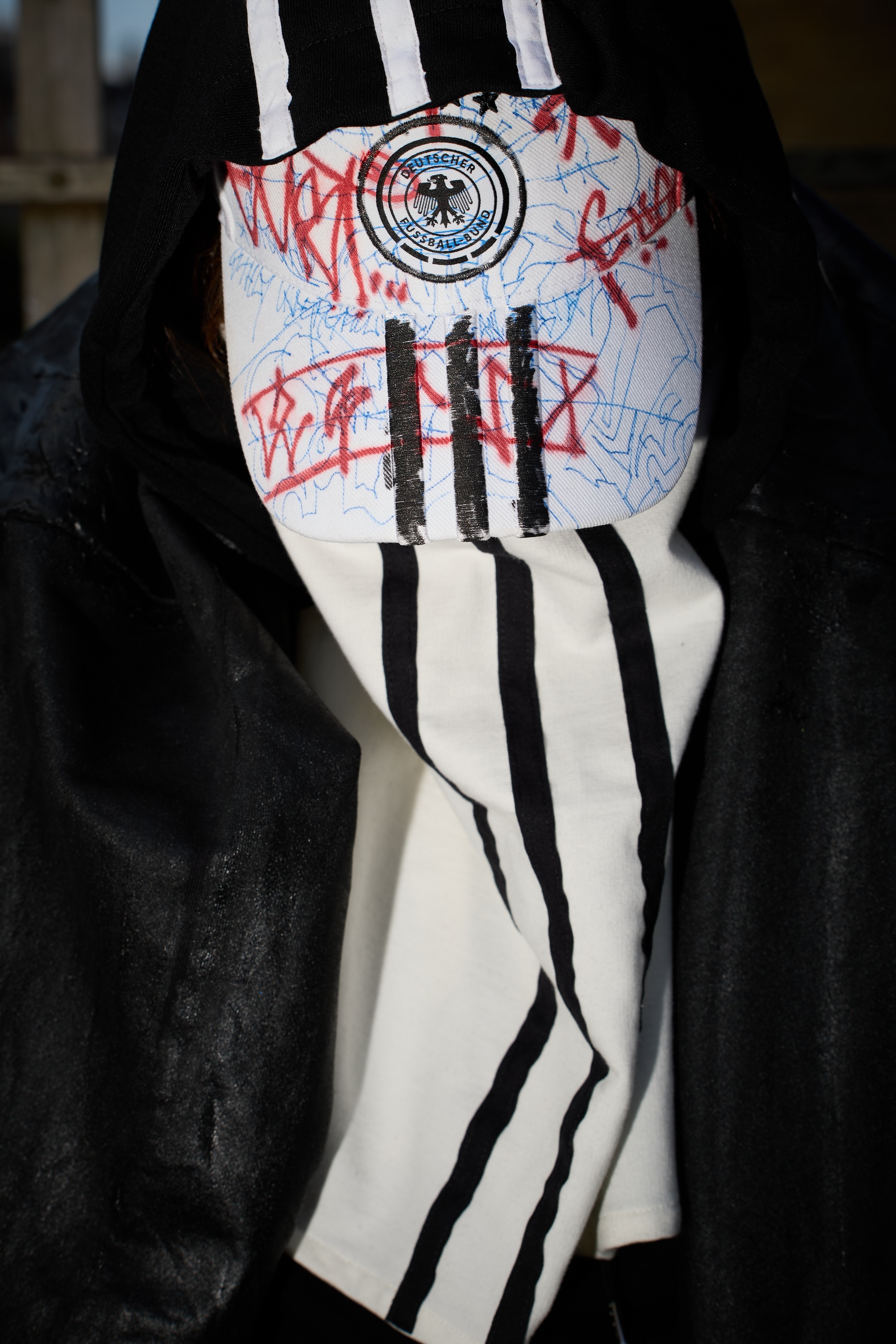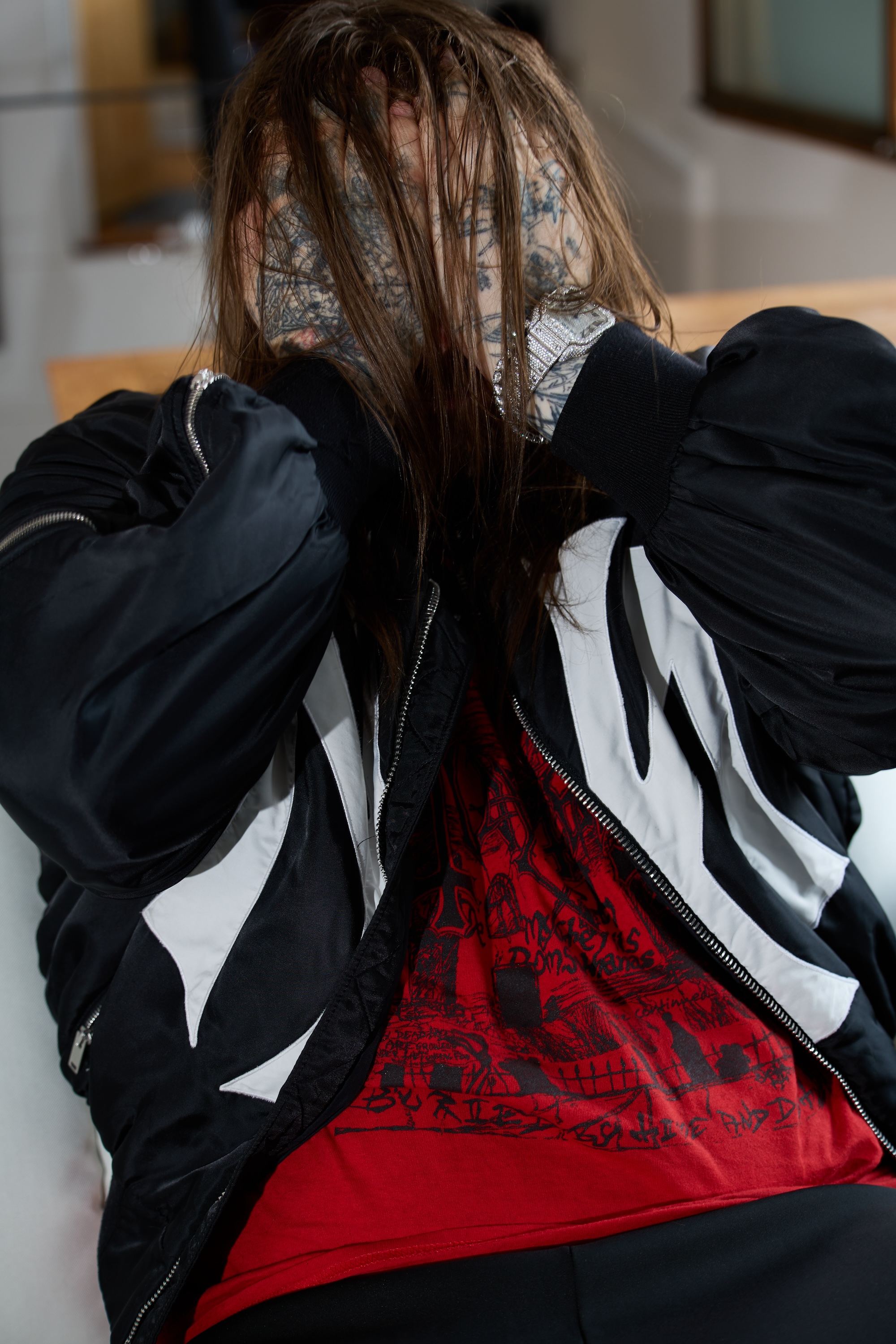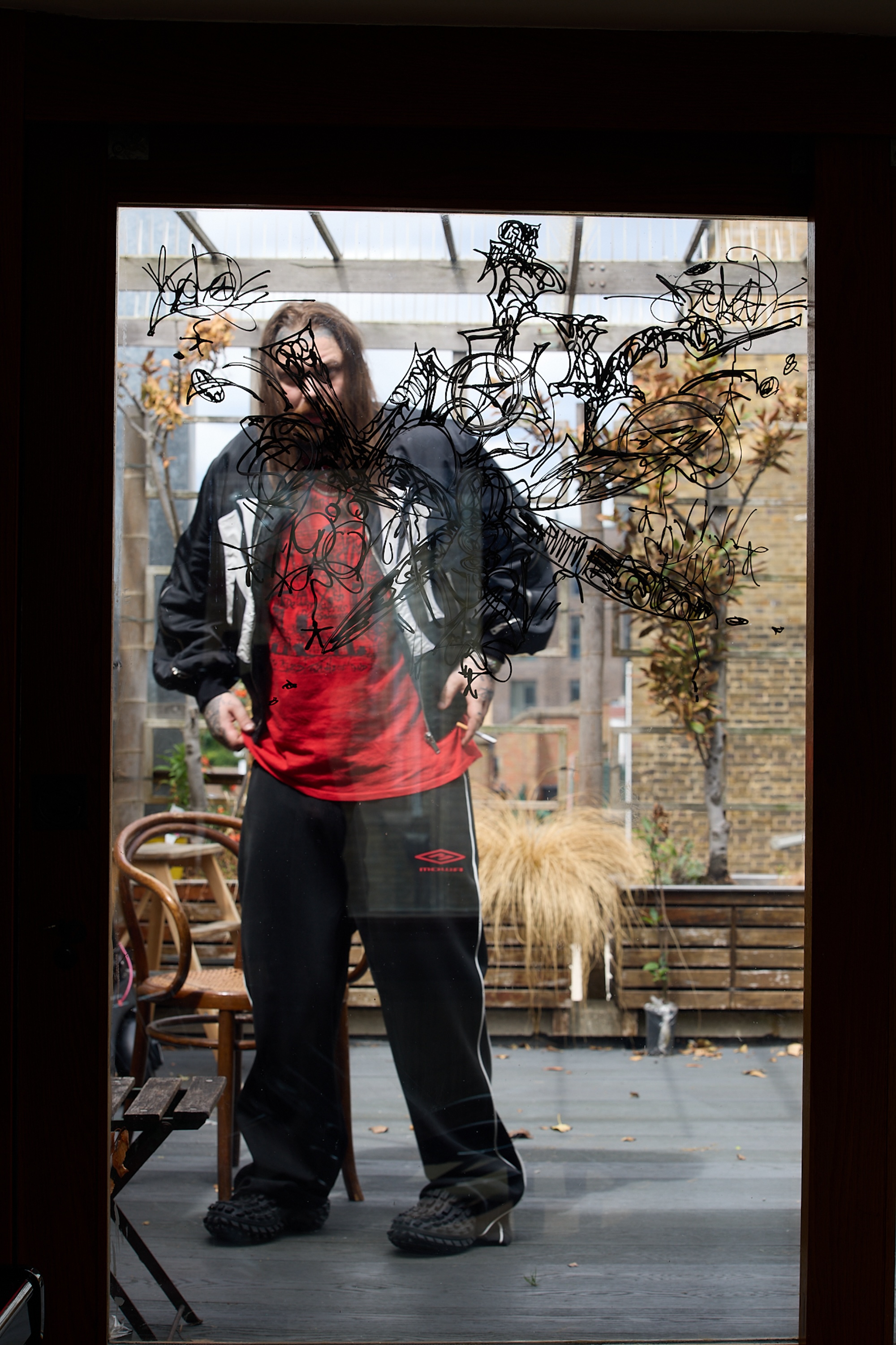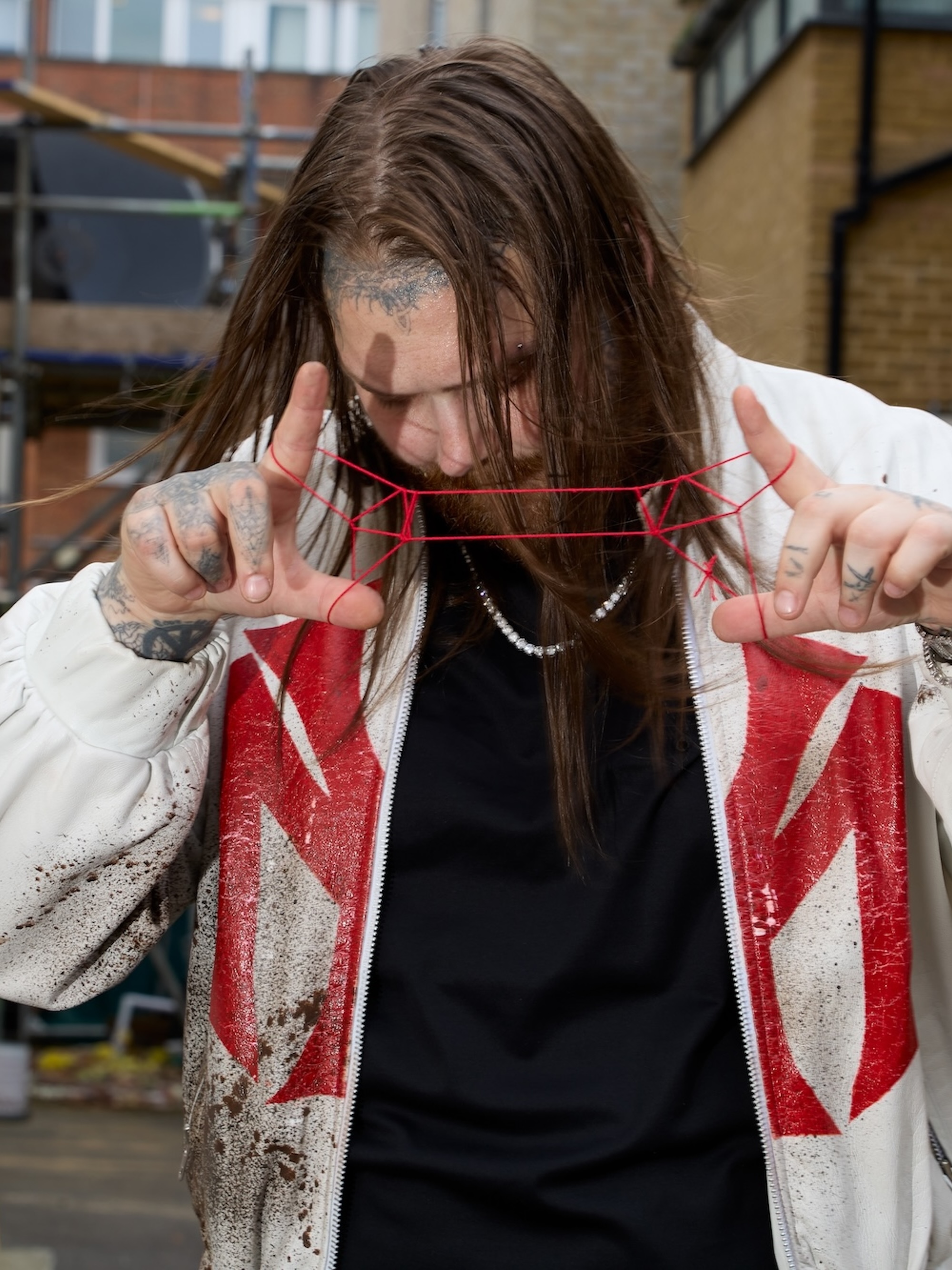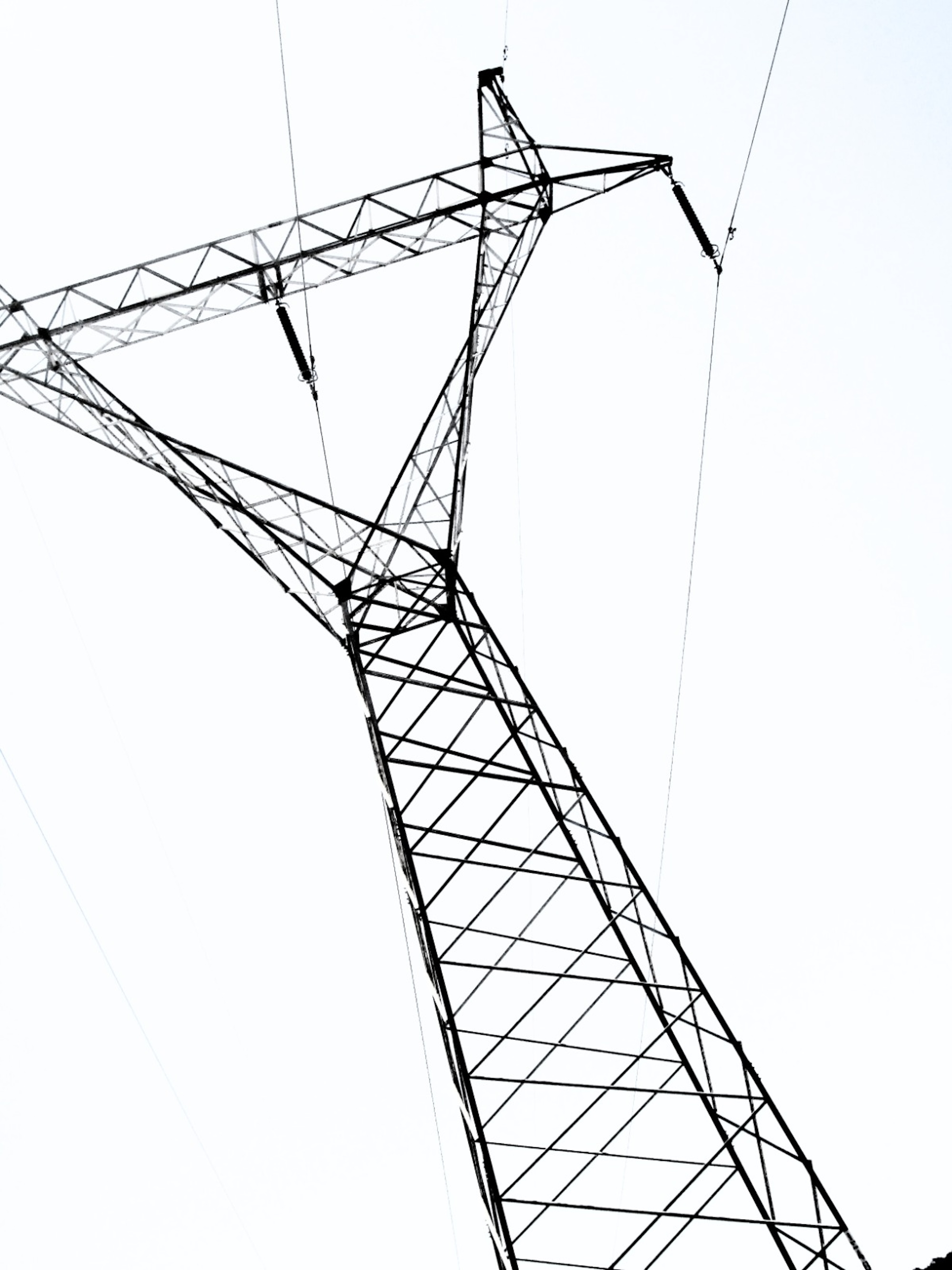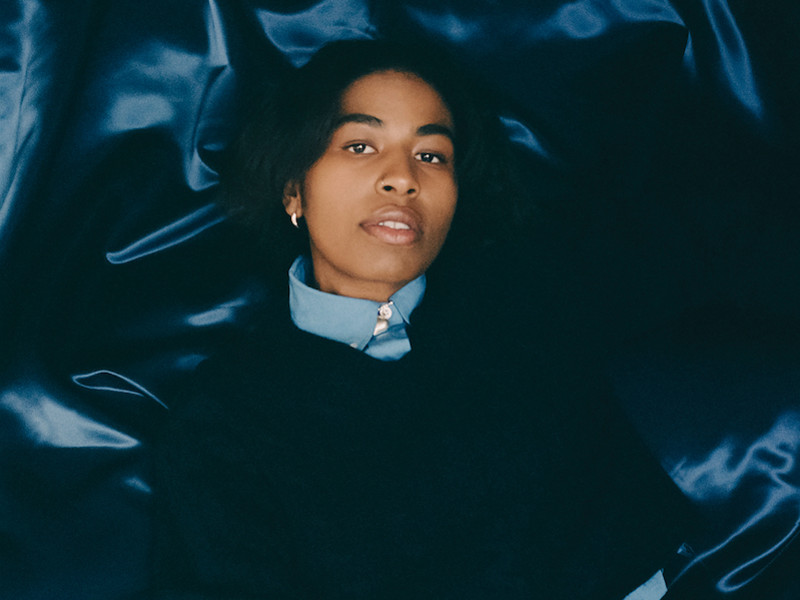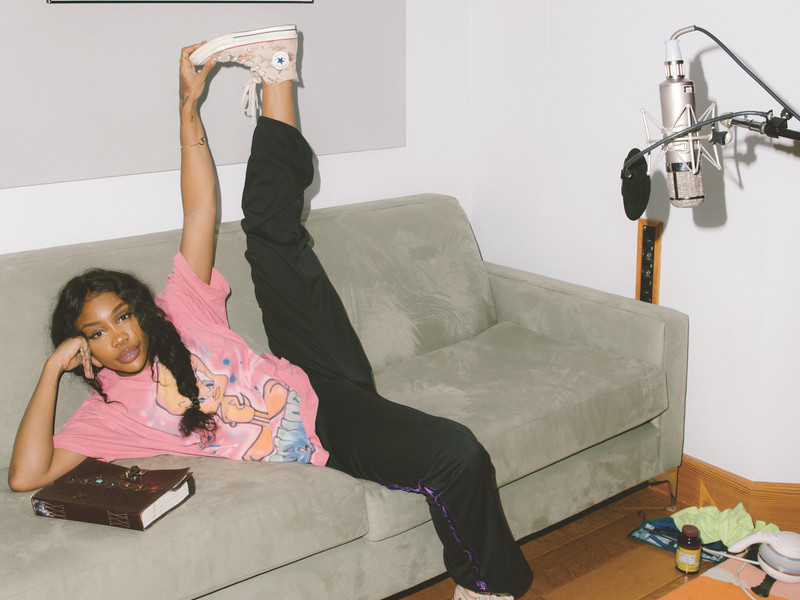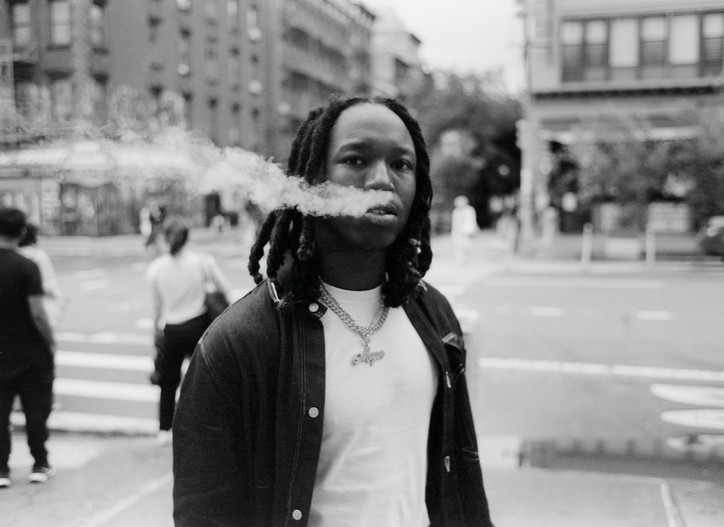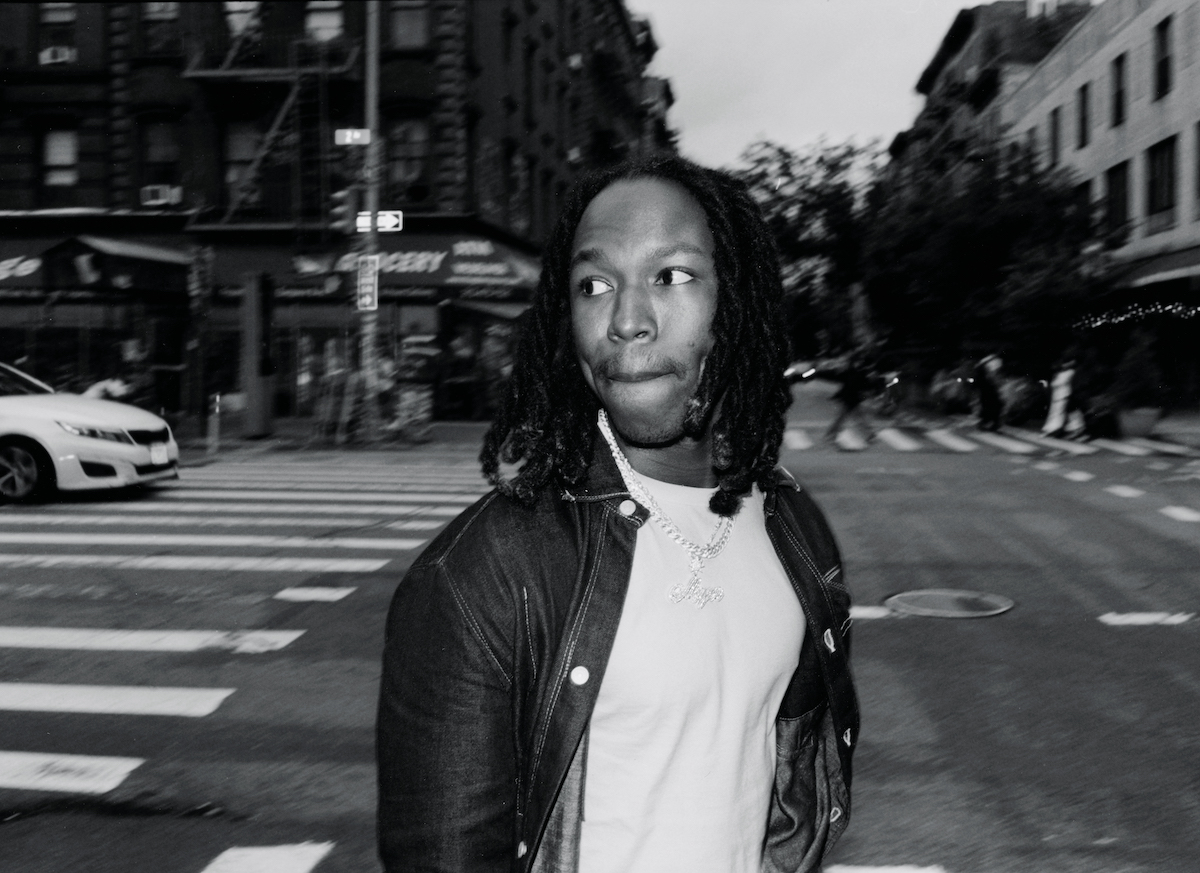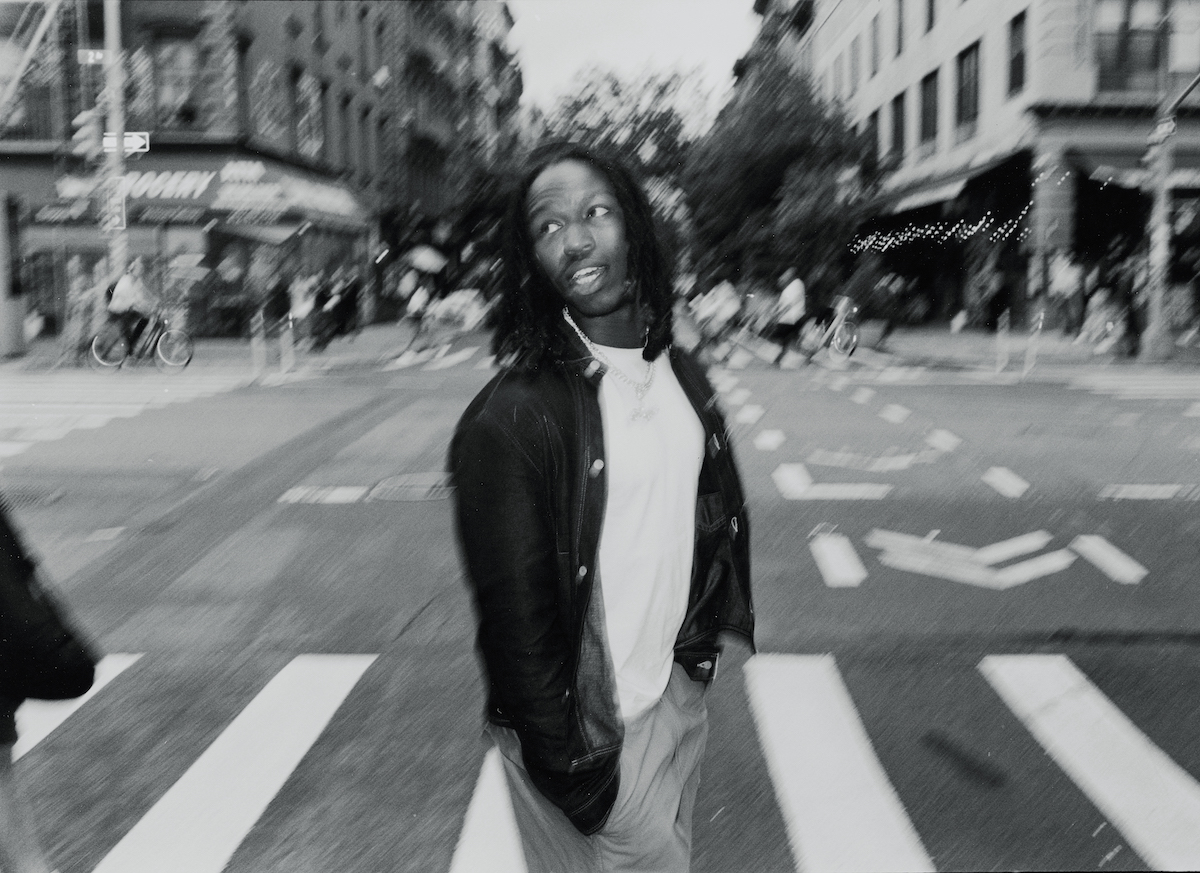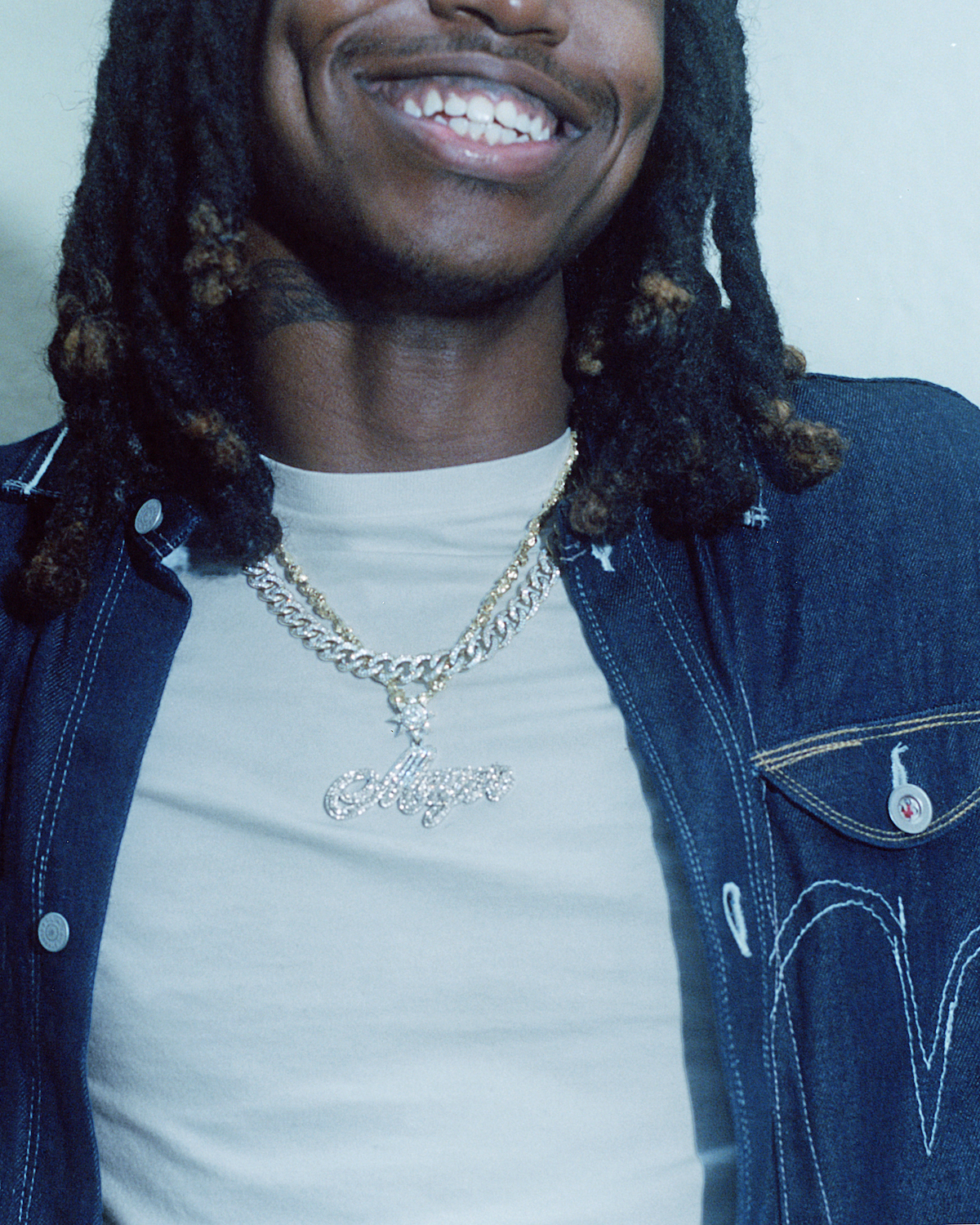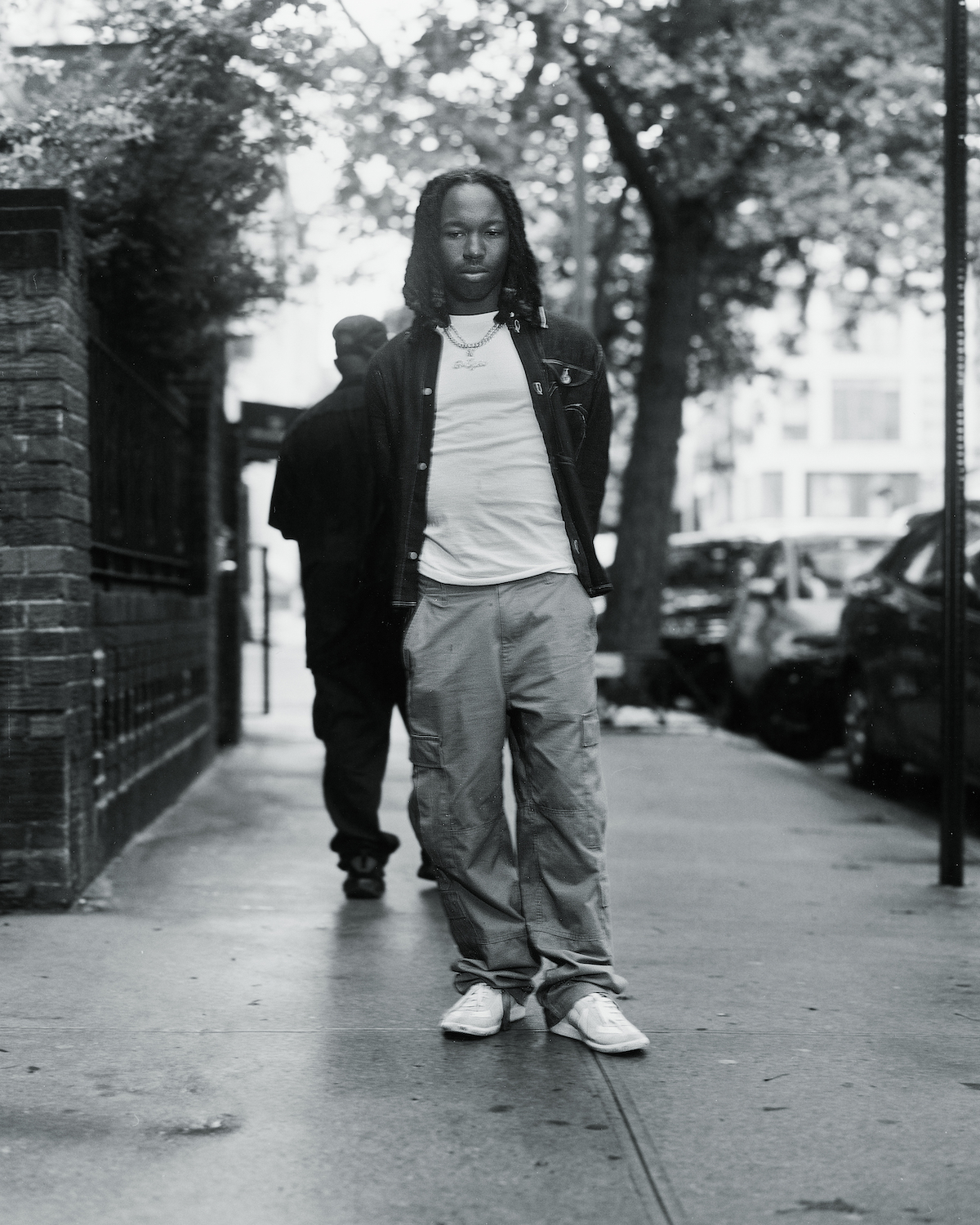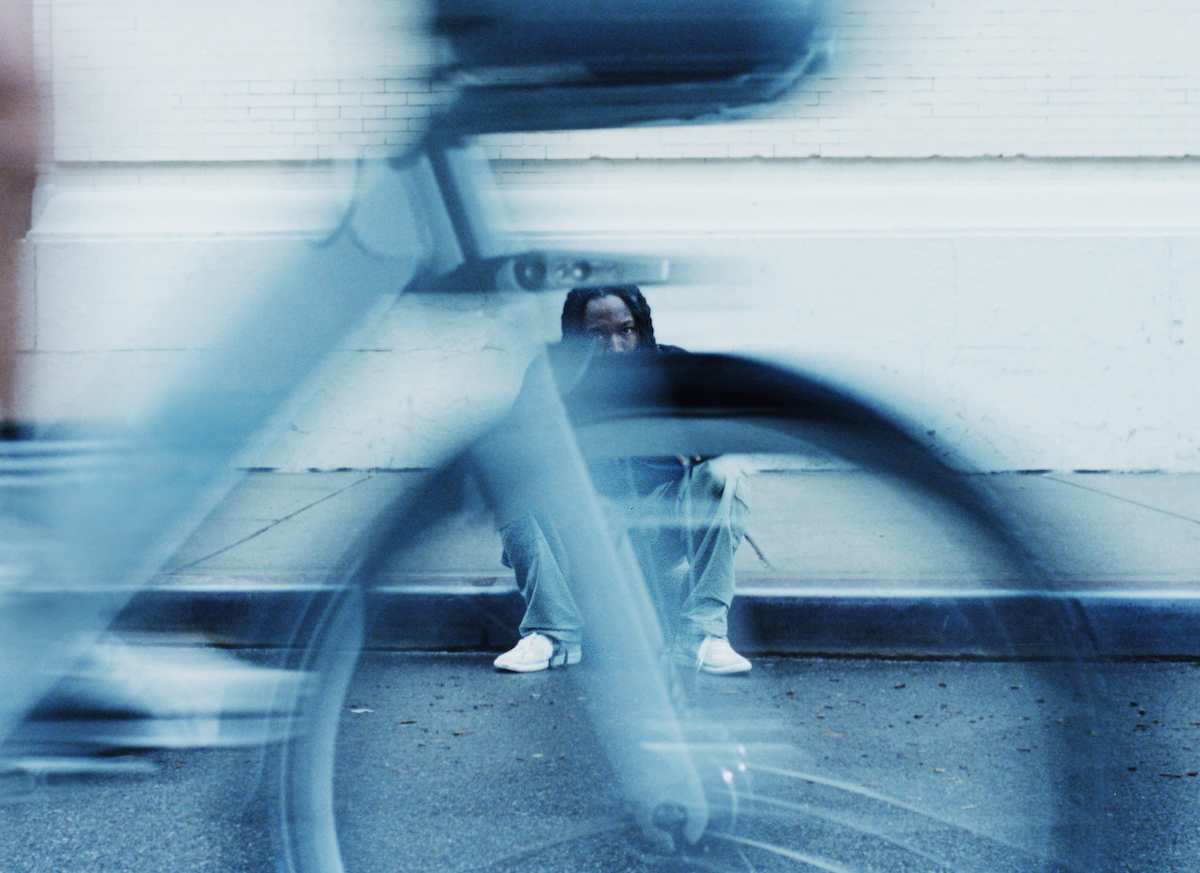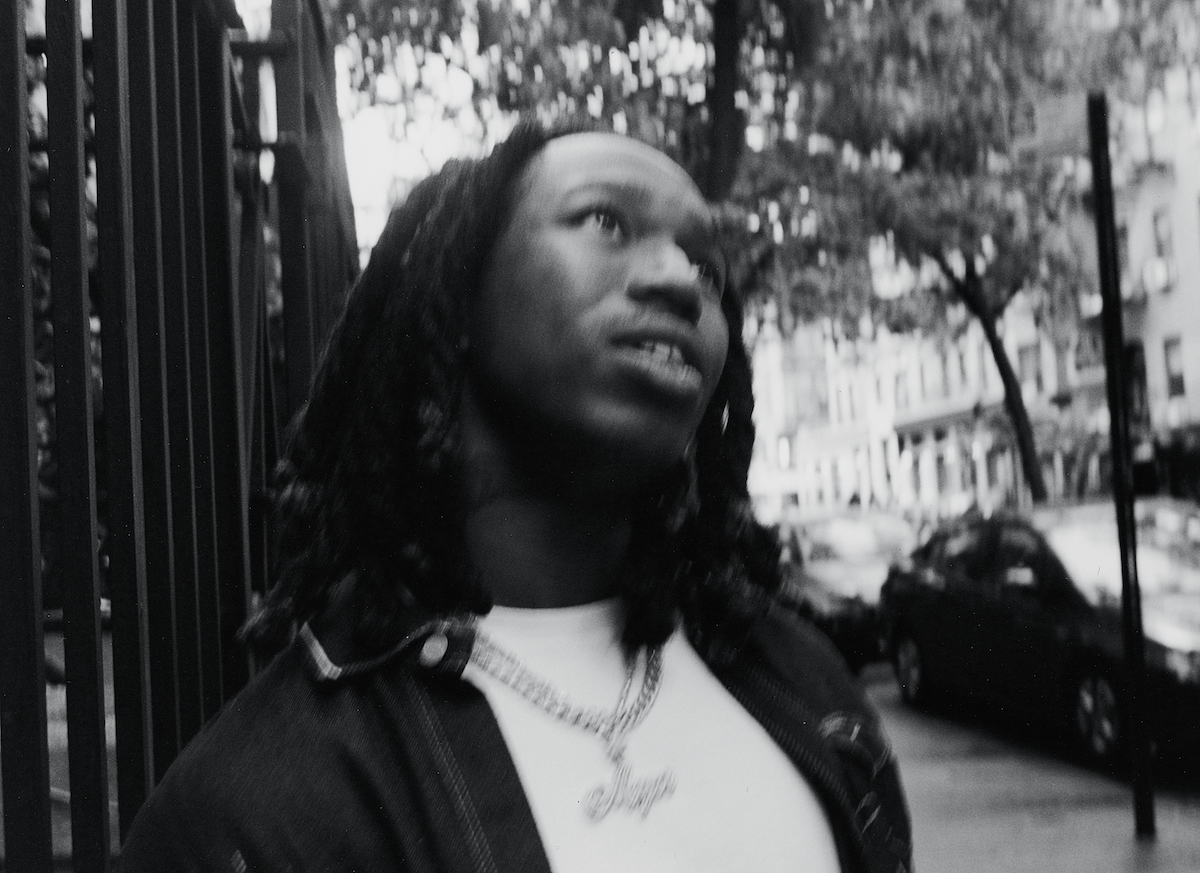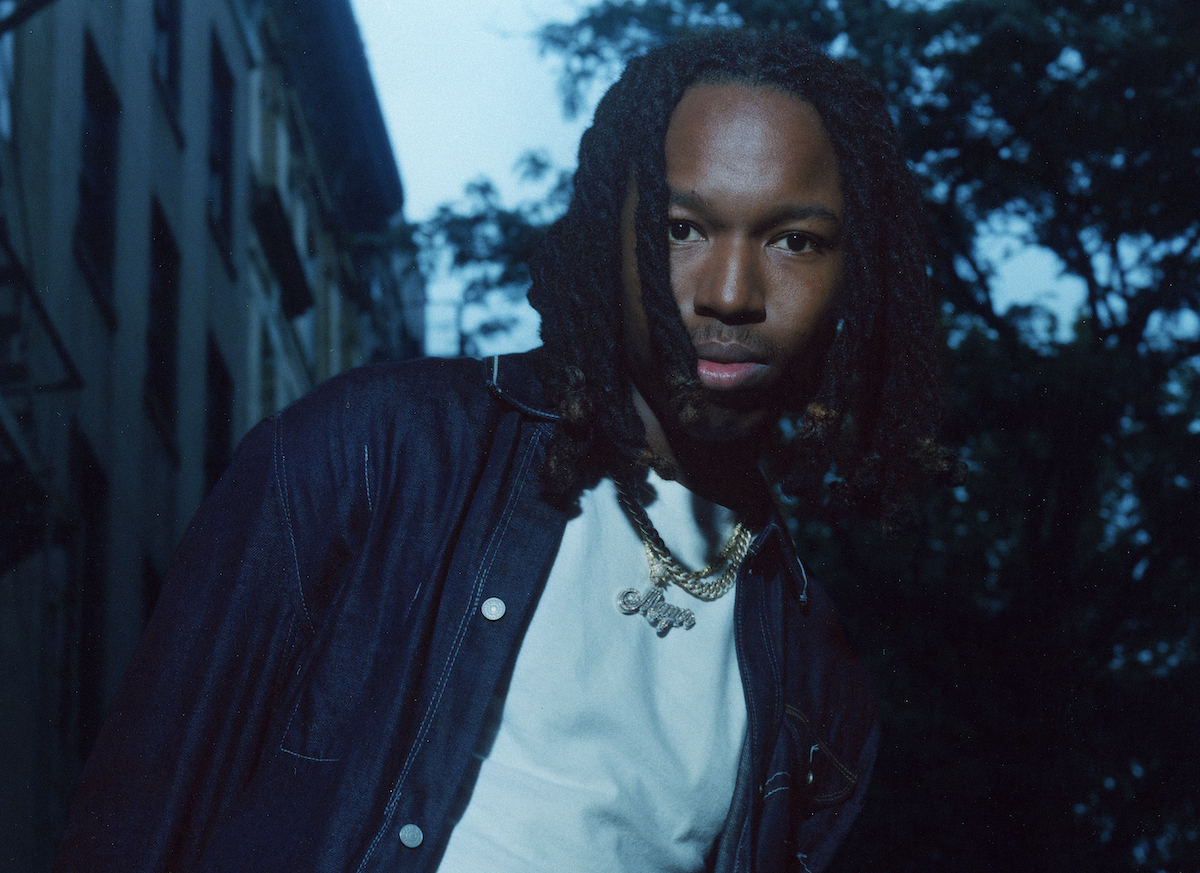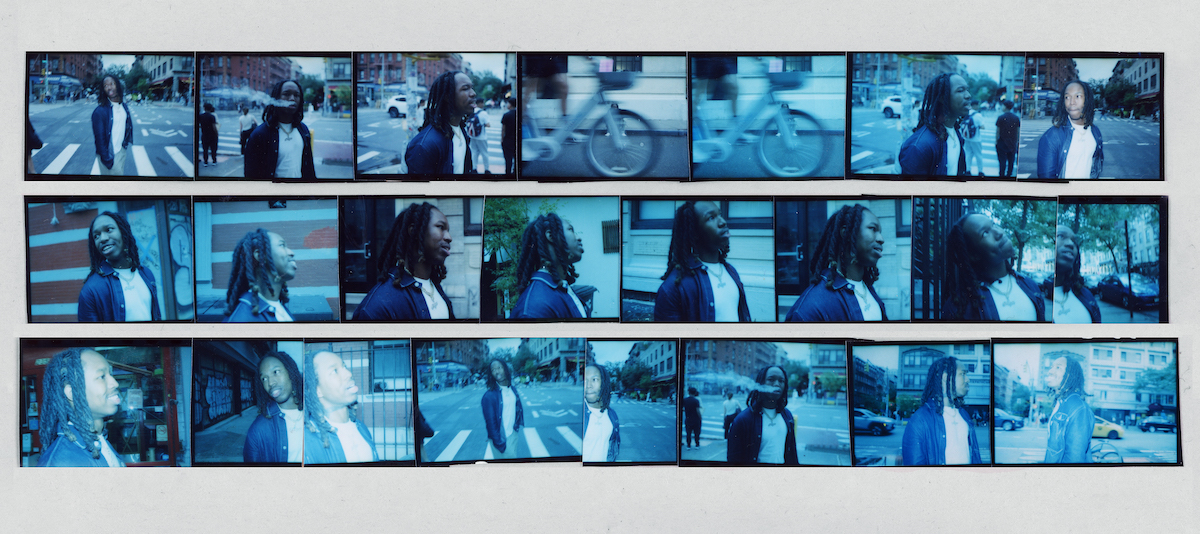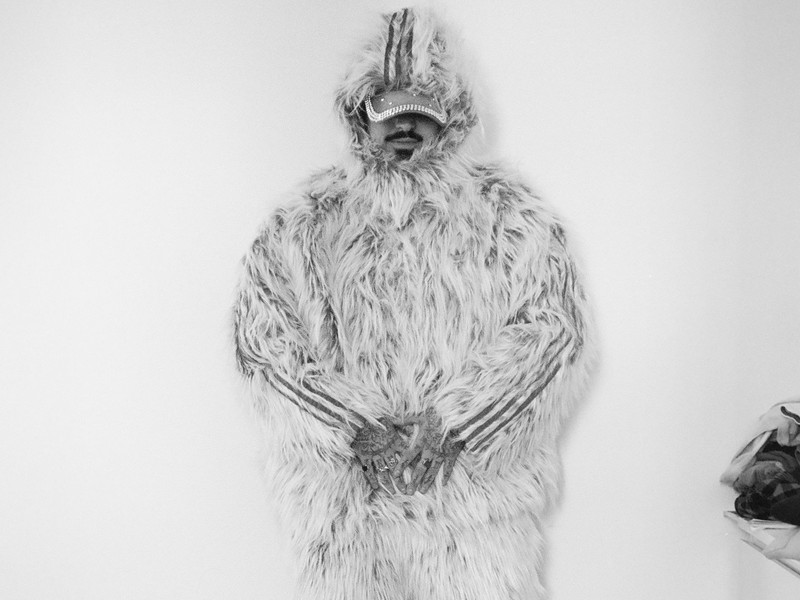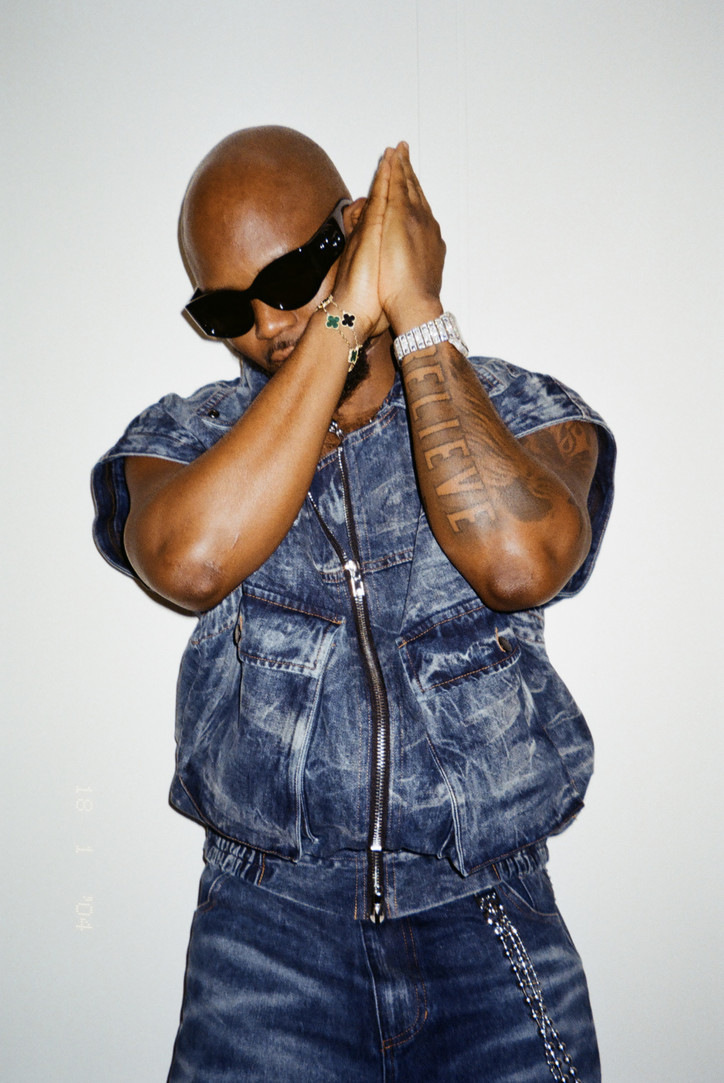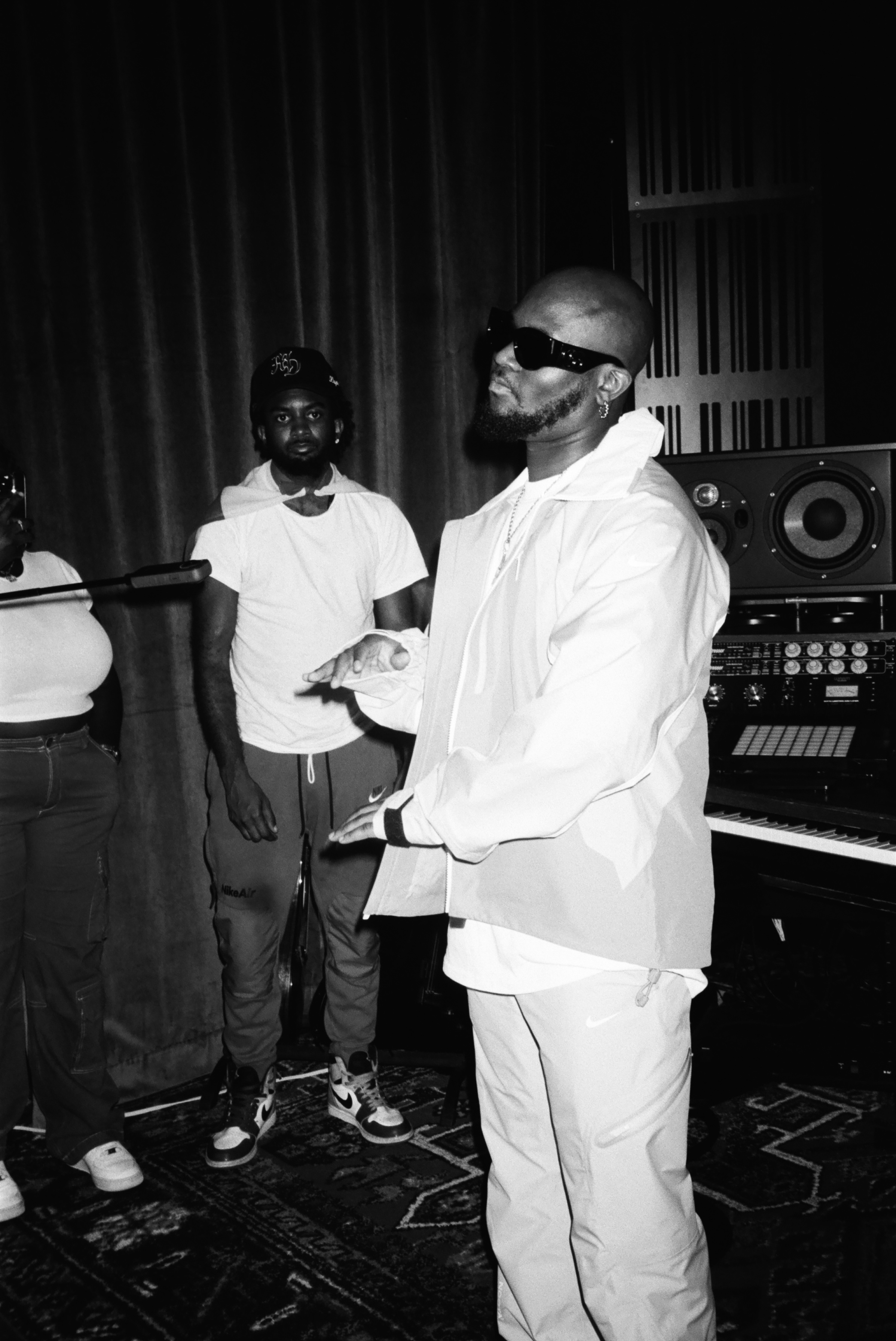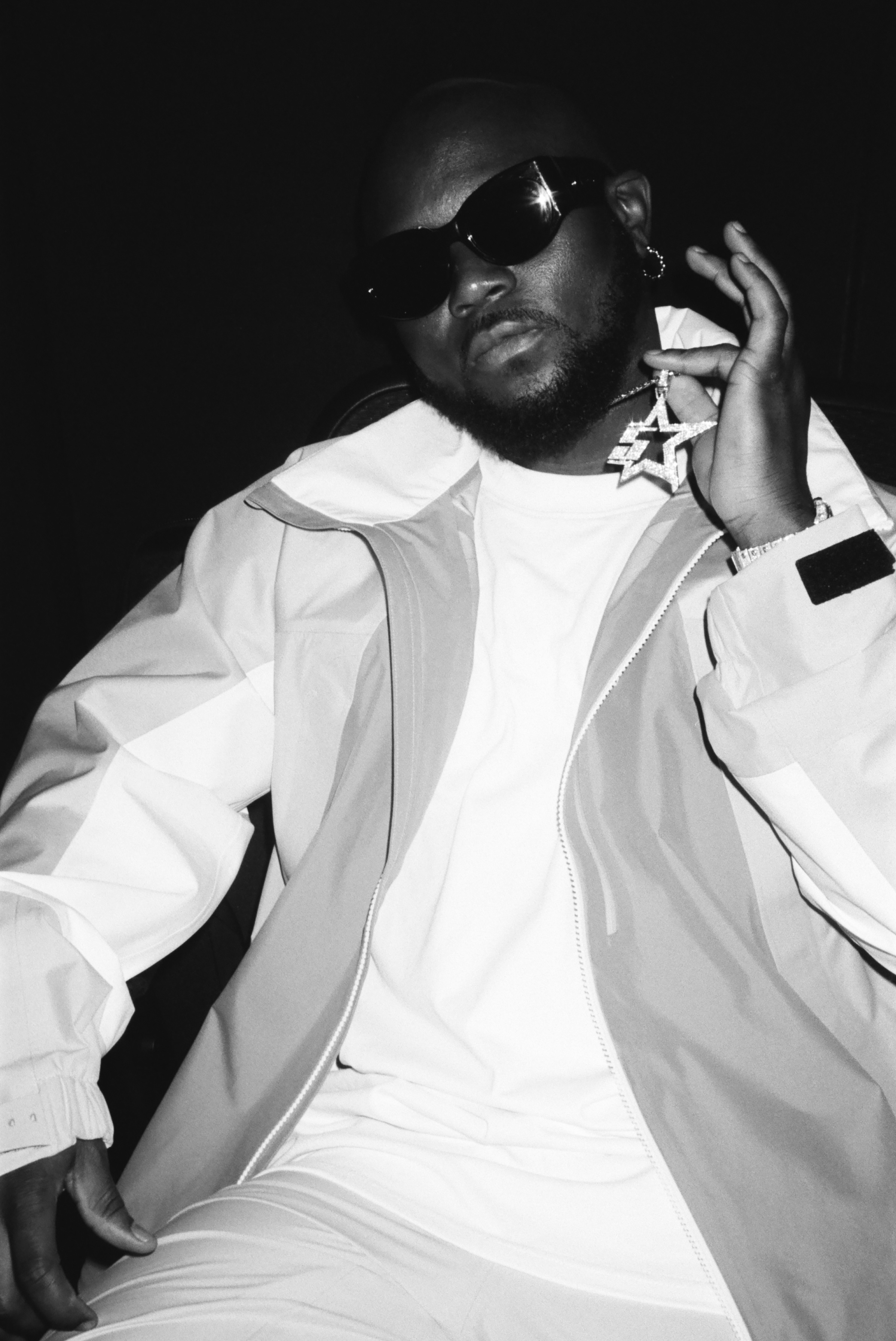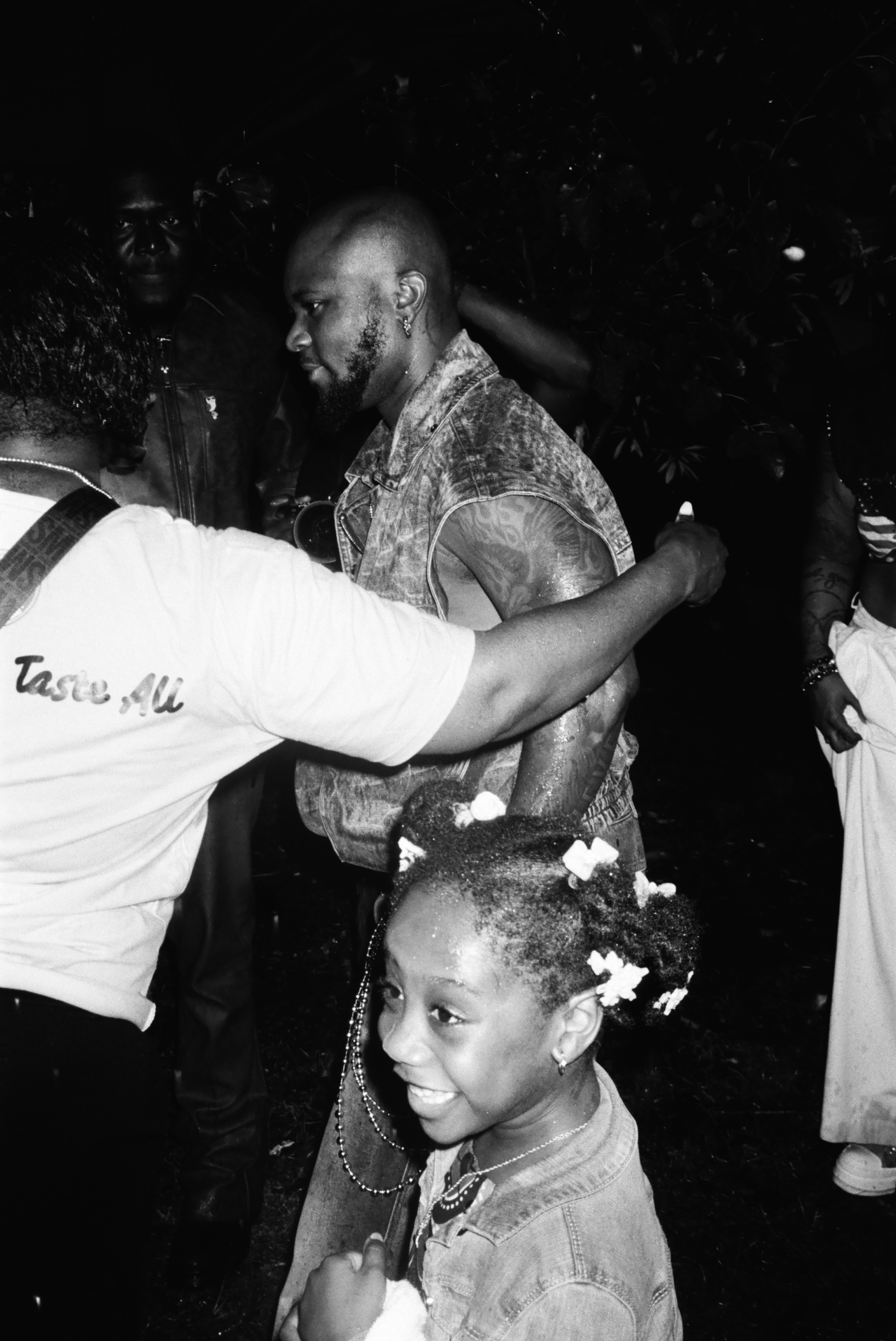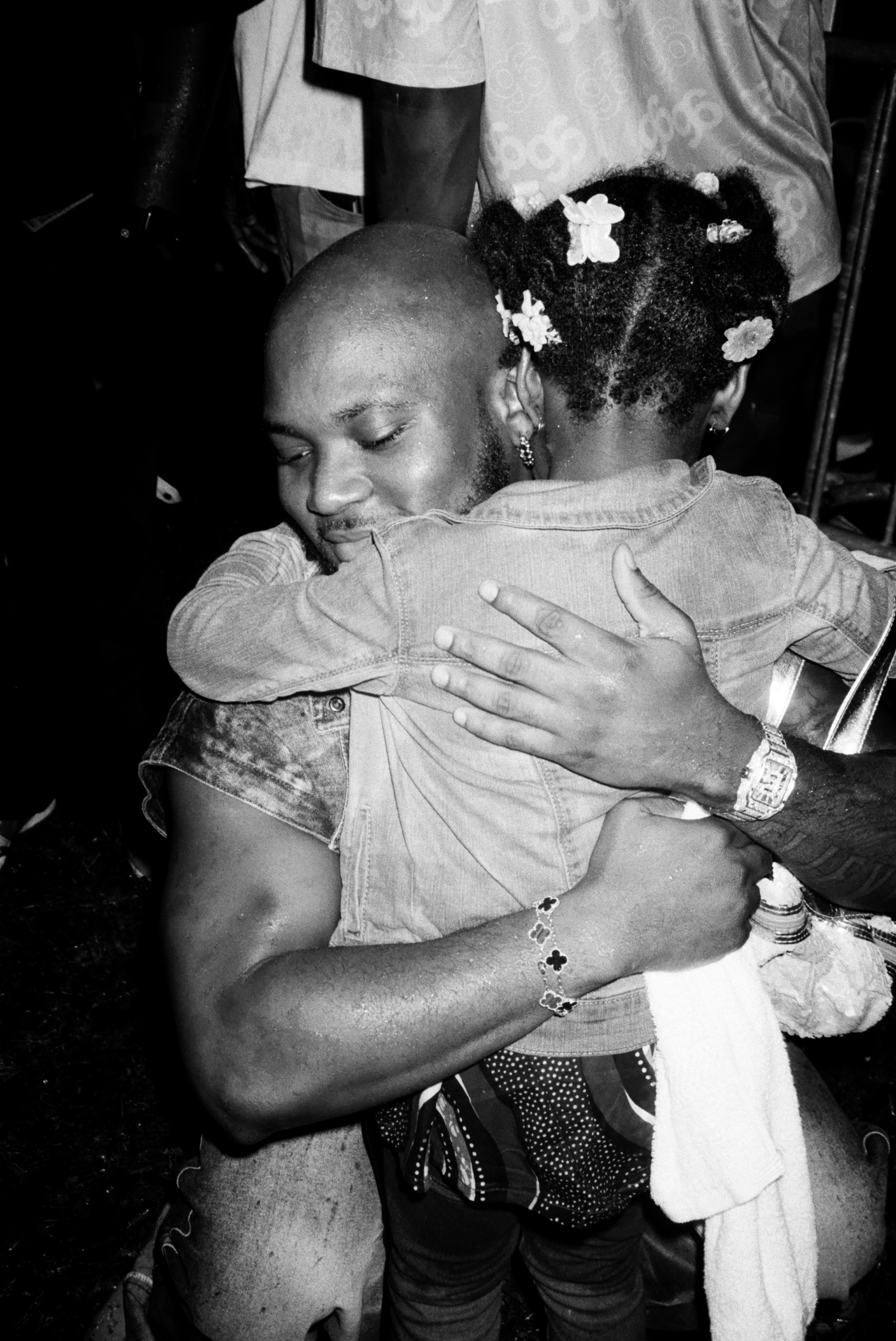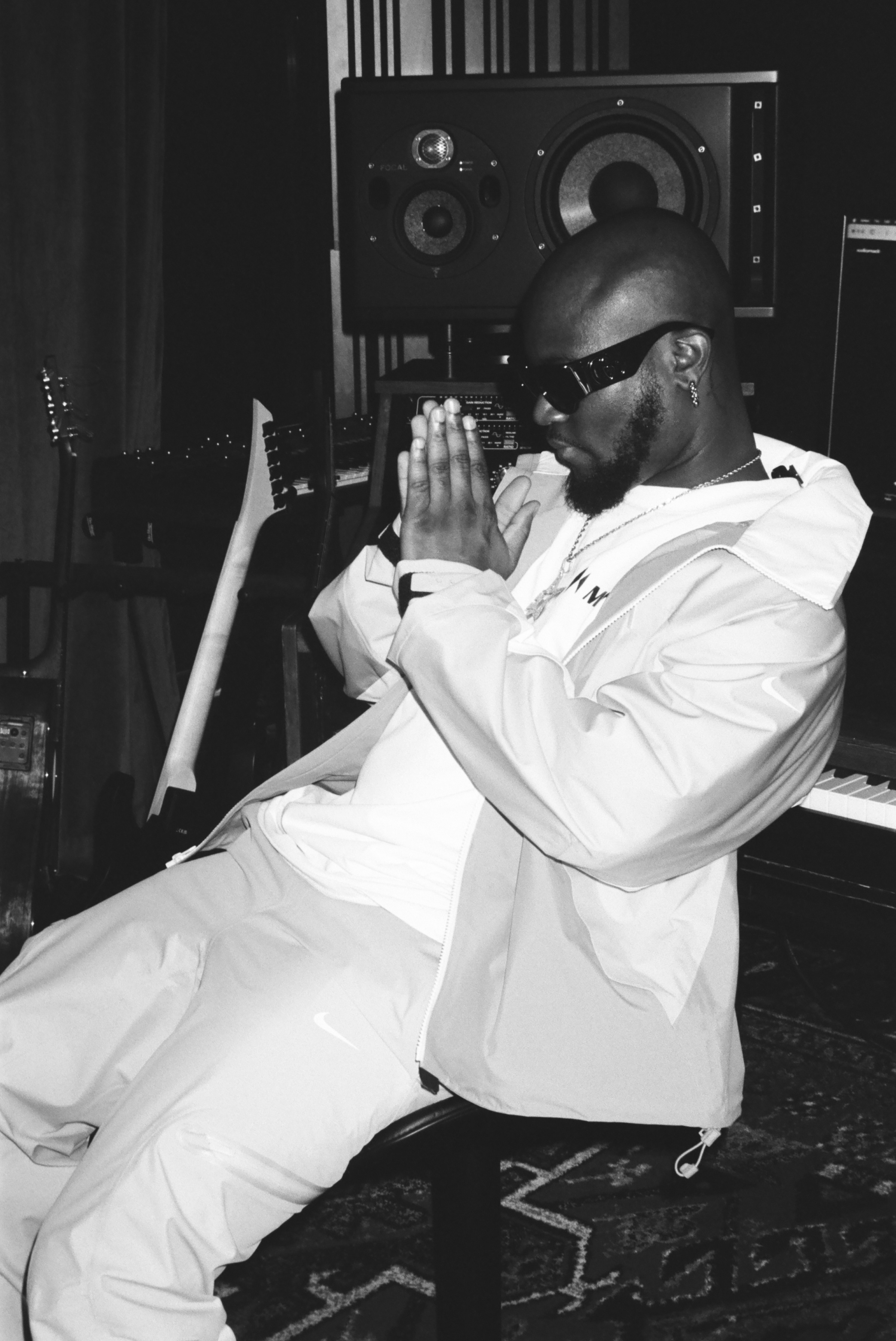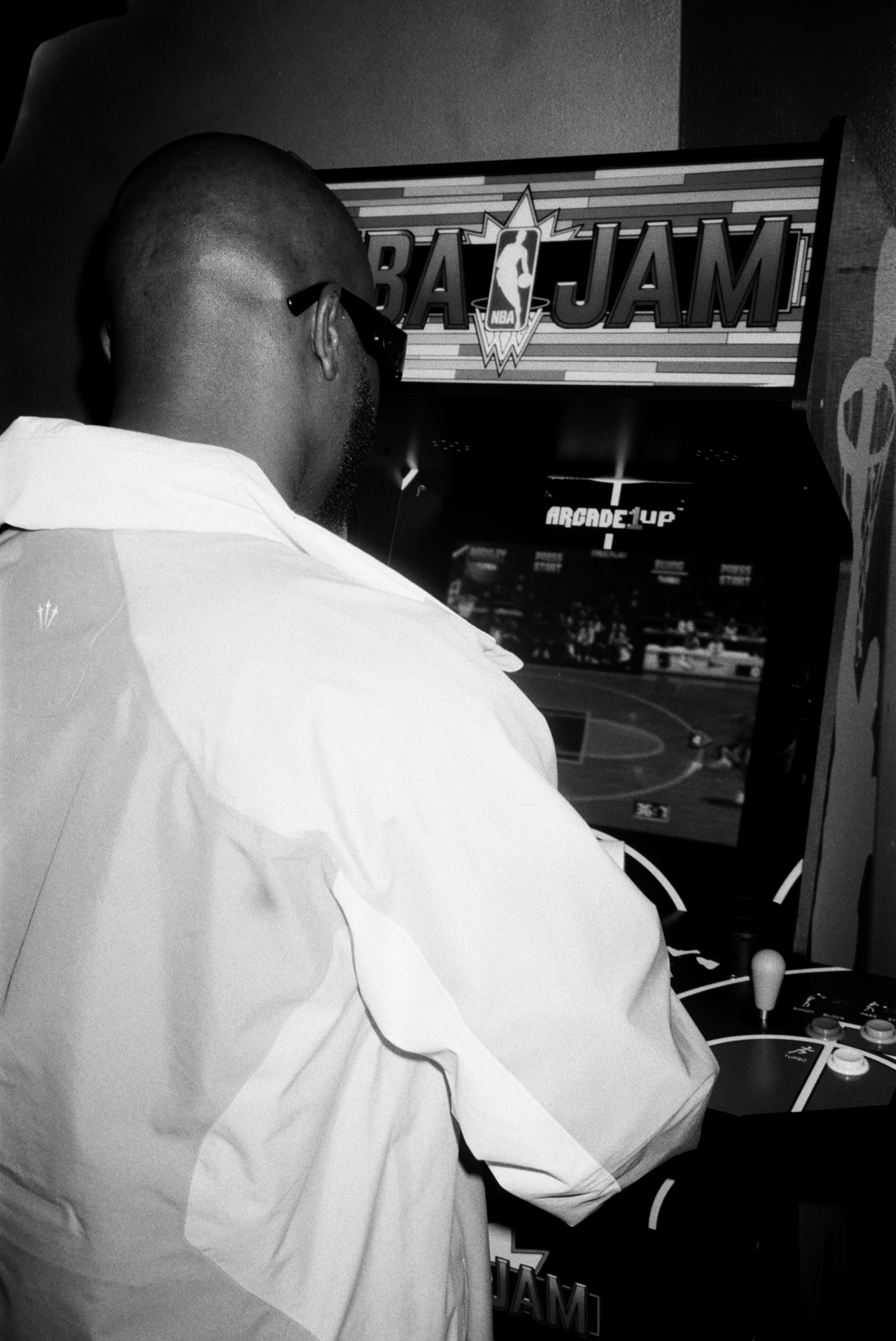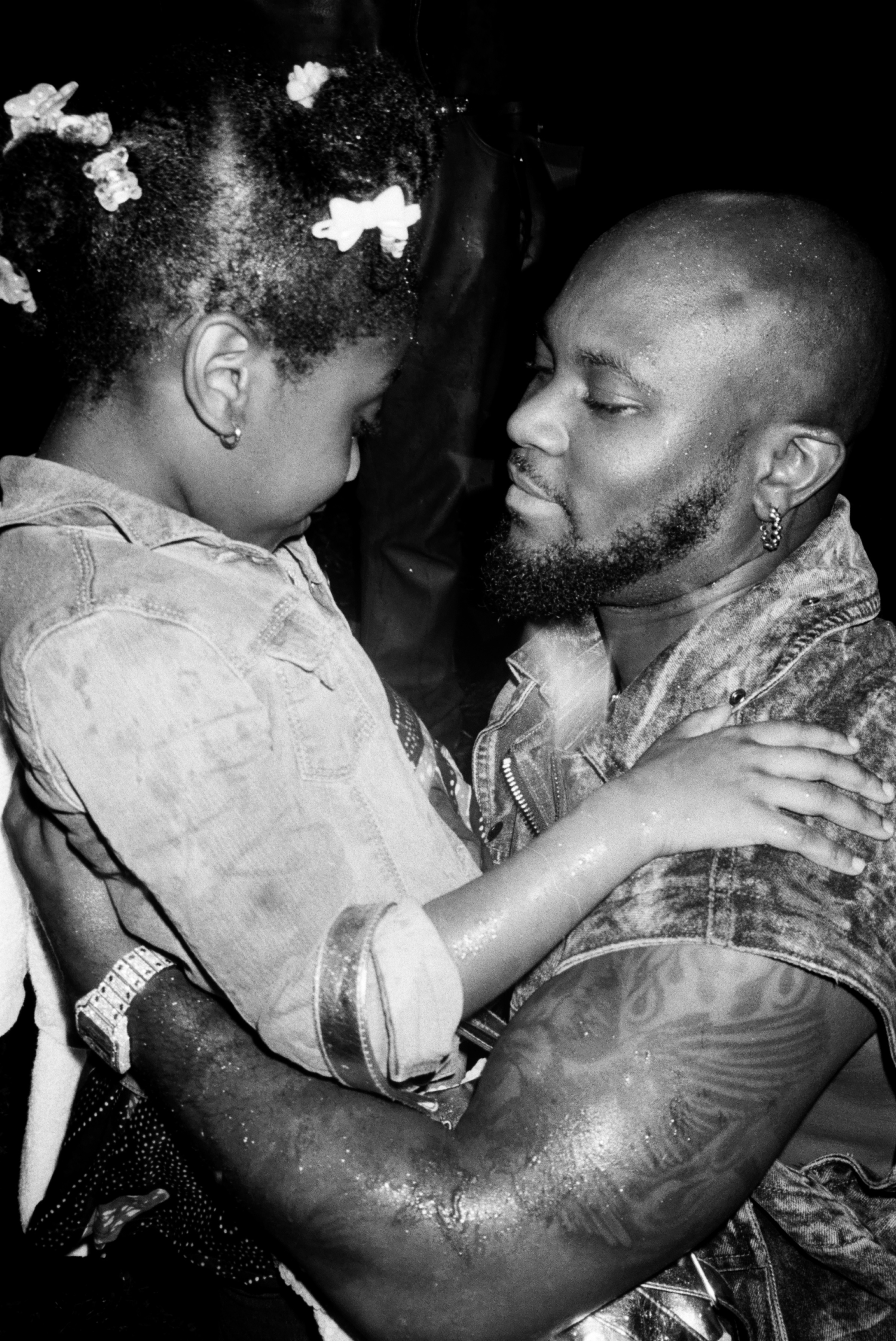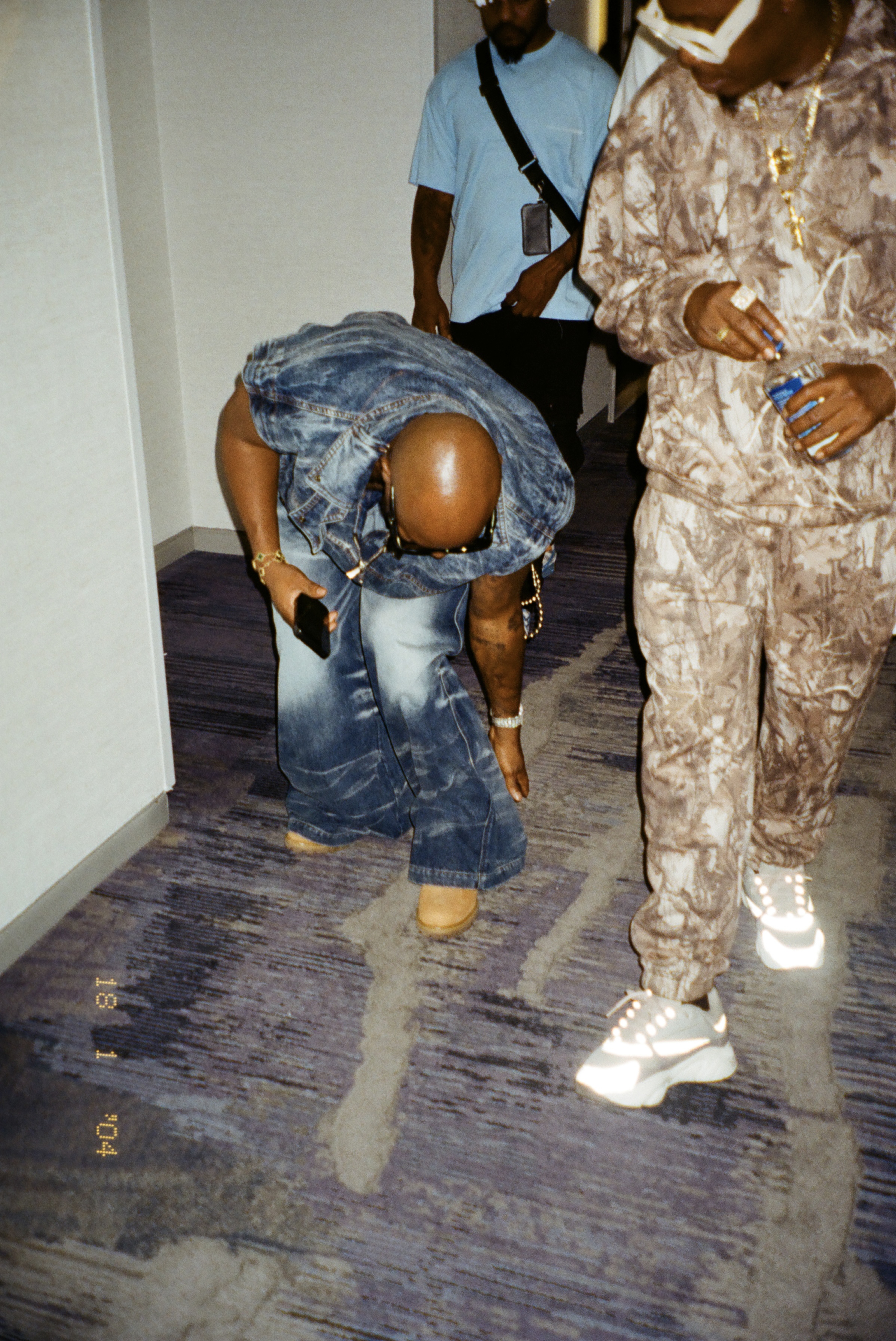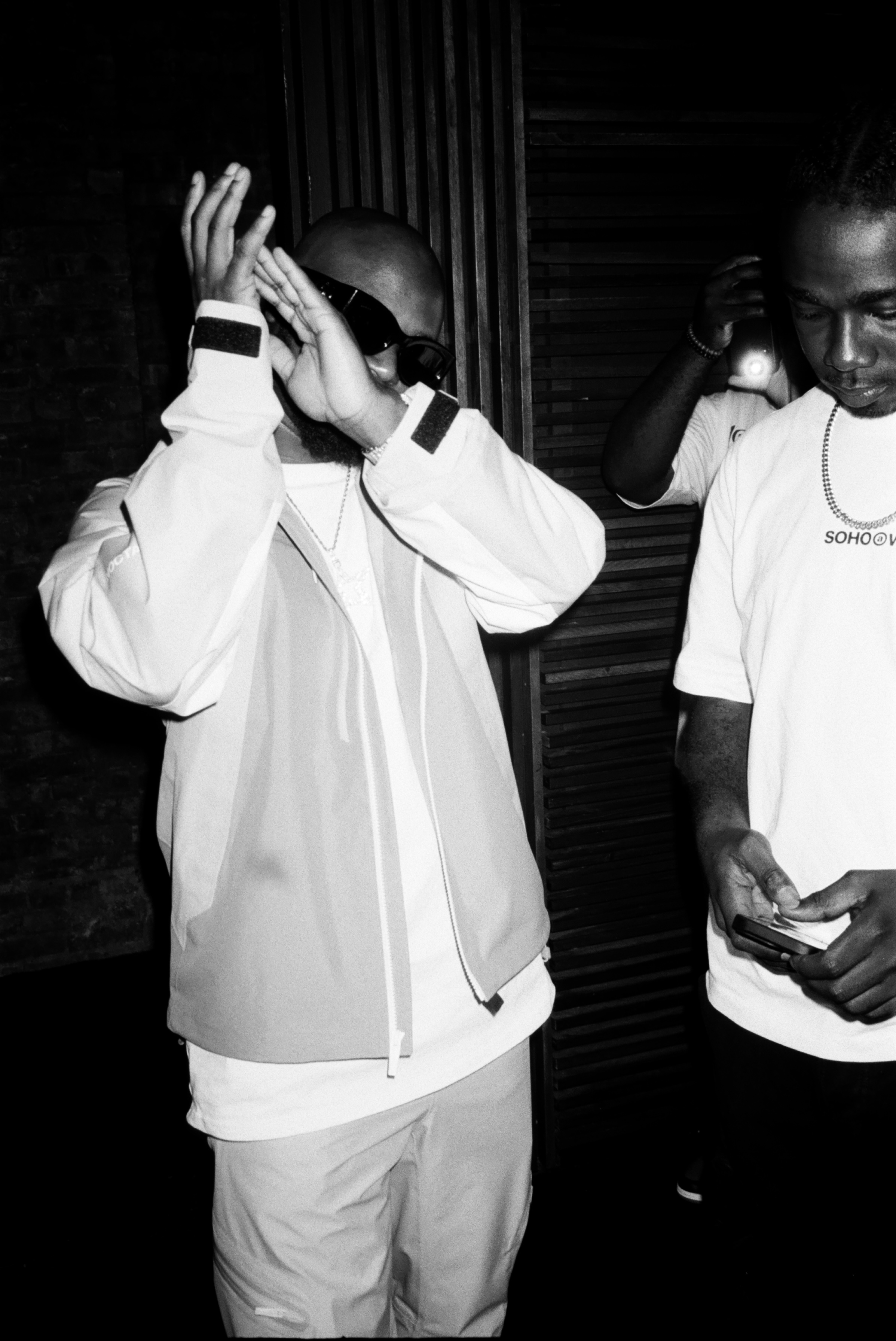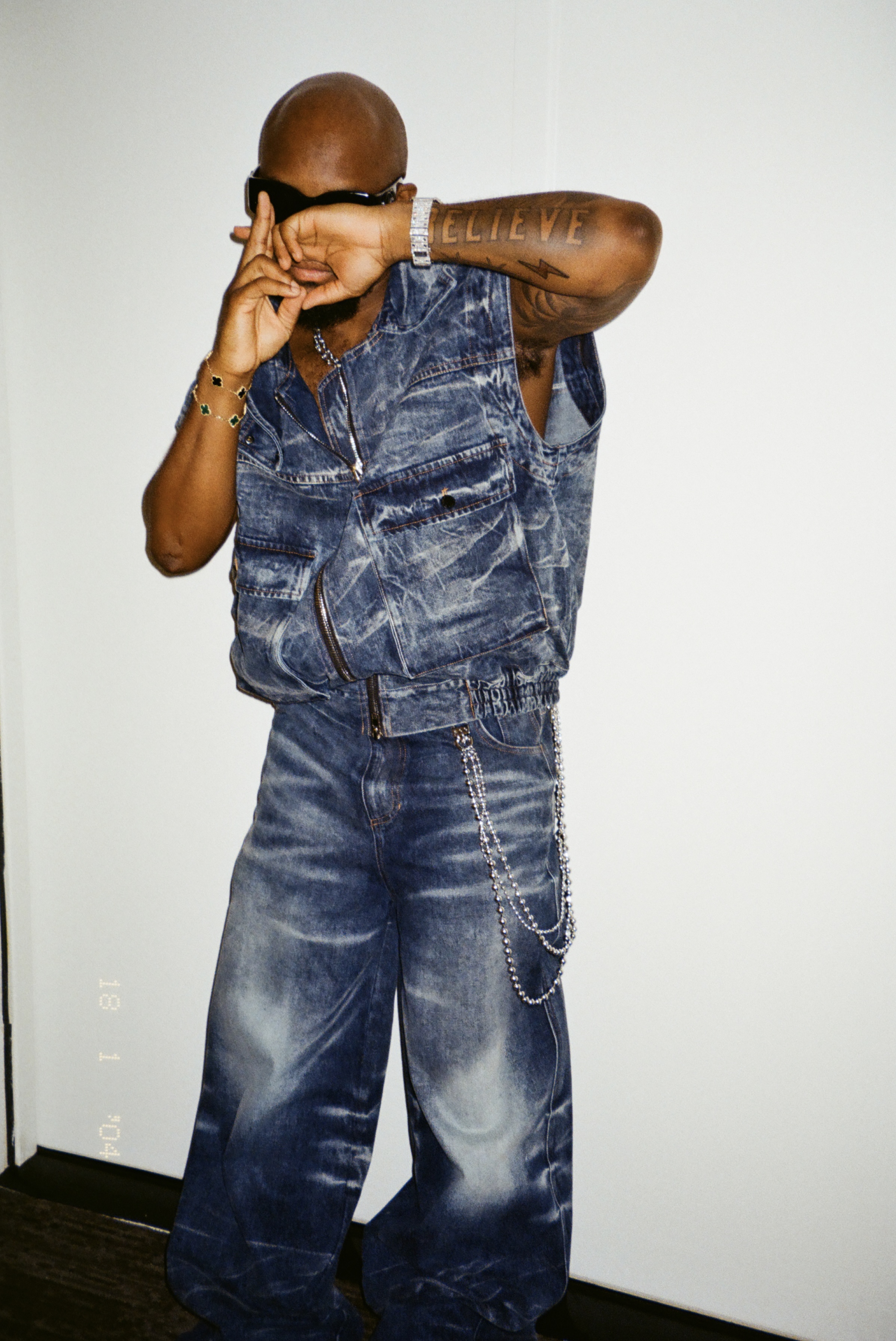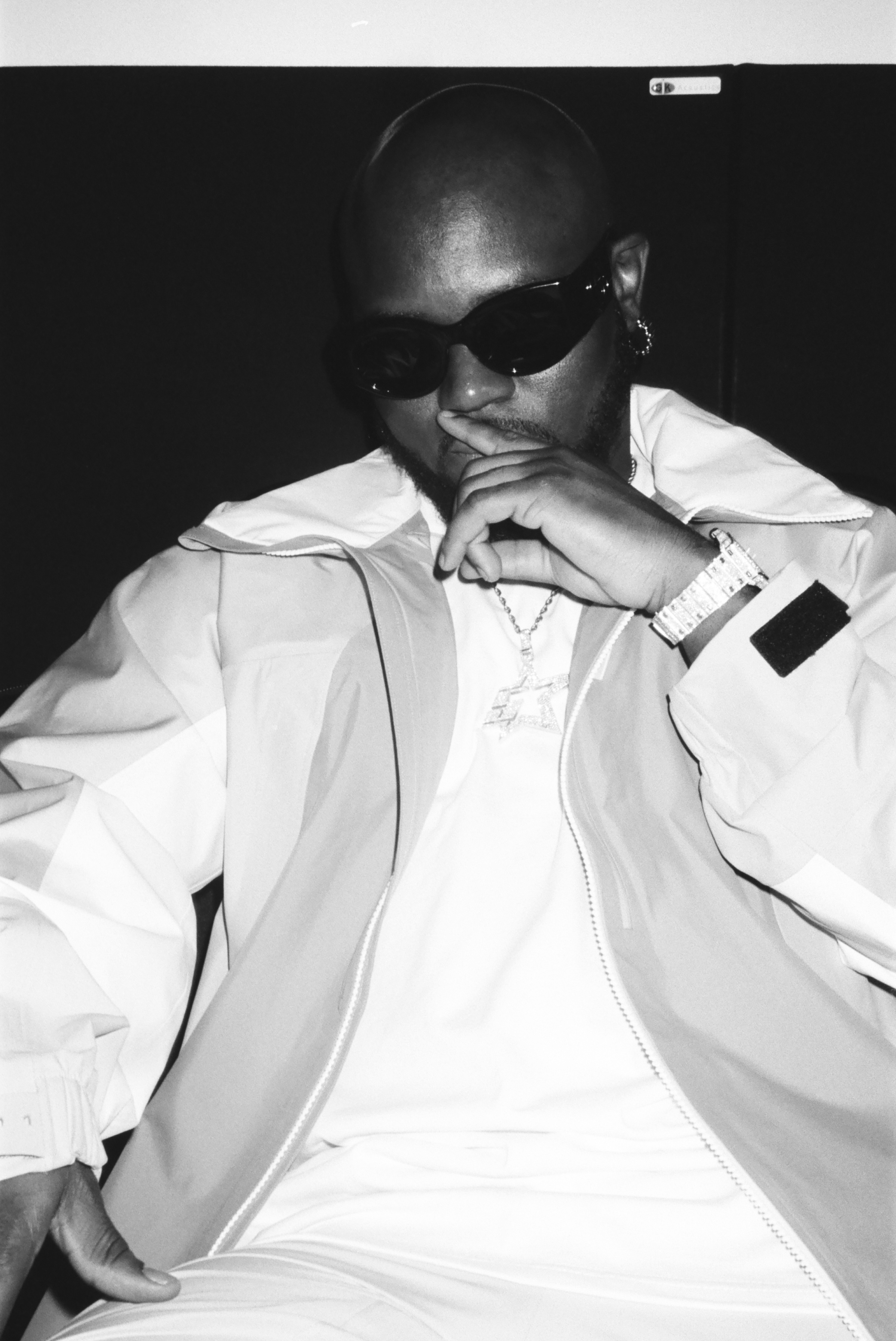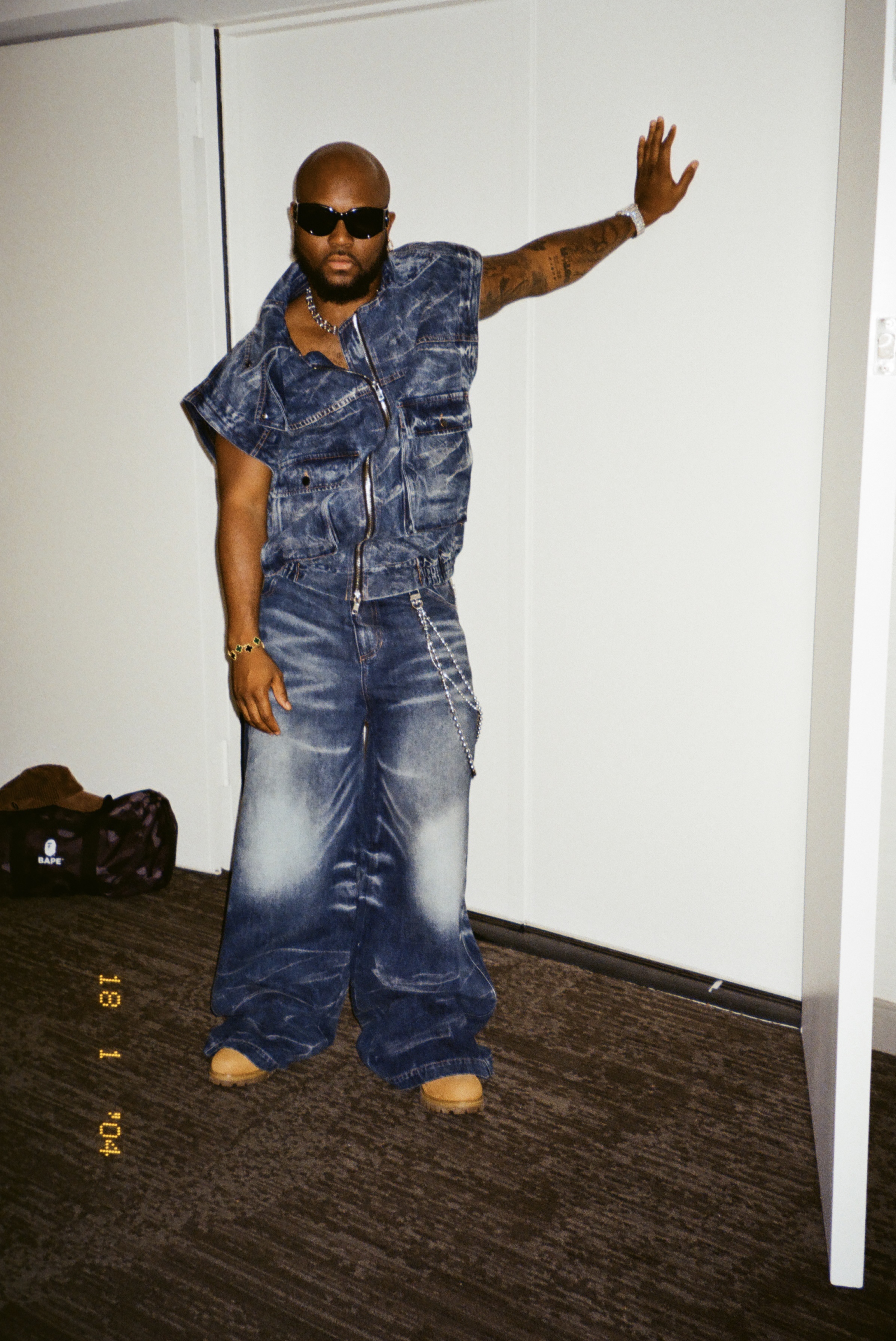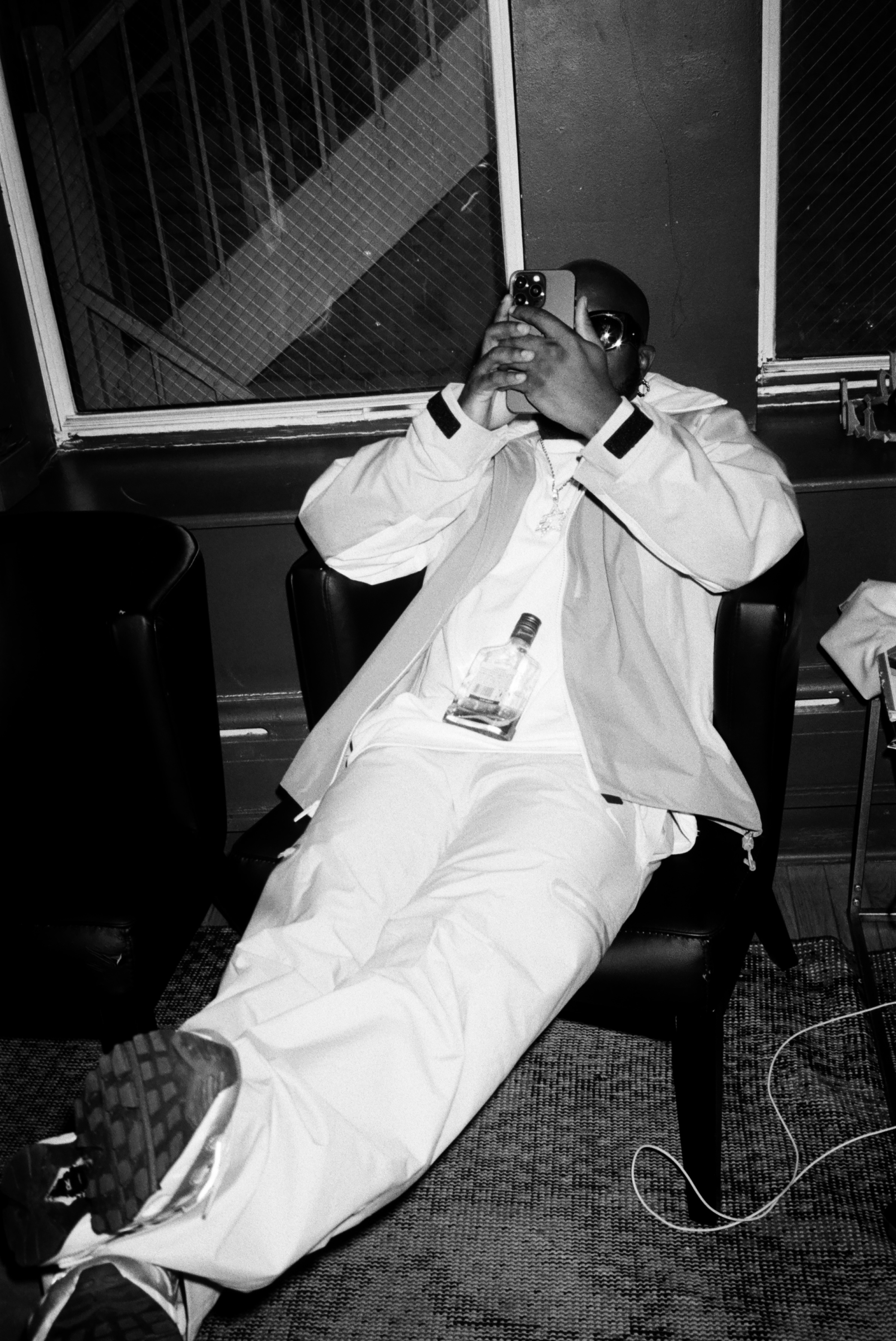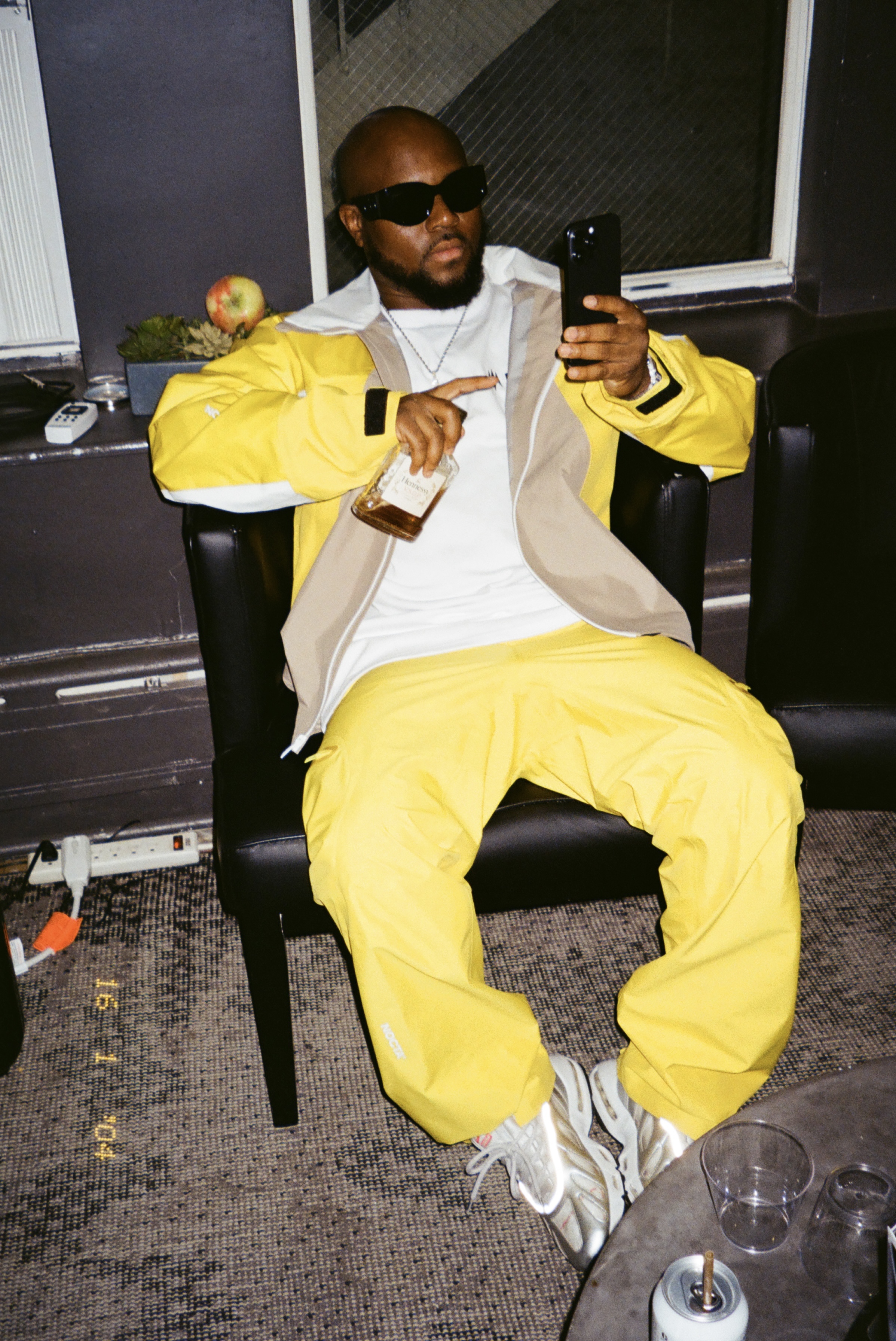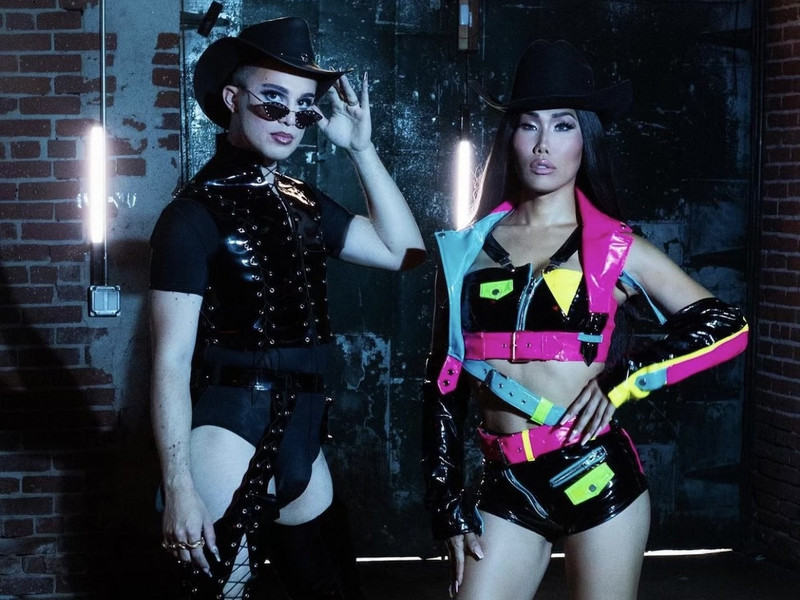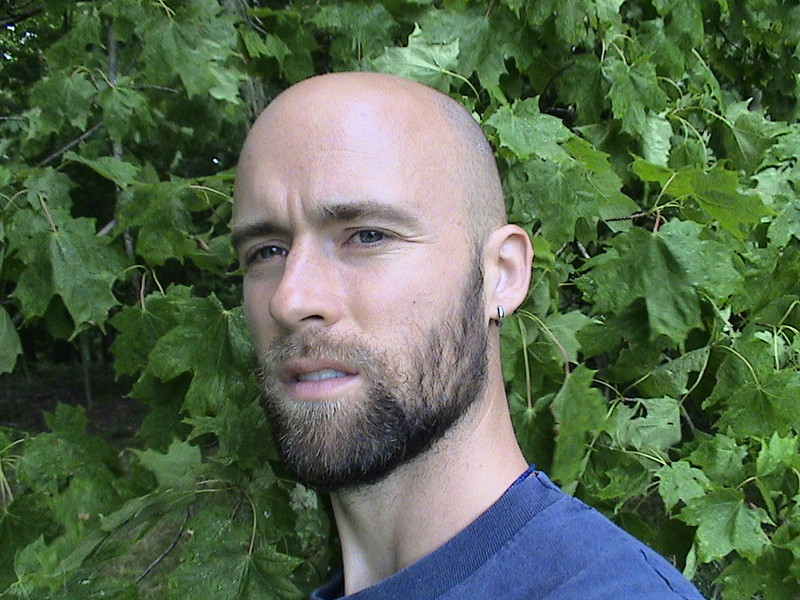"The Opposite of Beautiful is Literal": A Conversation with A. G. Cook and Caroline Polachek
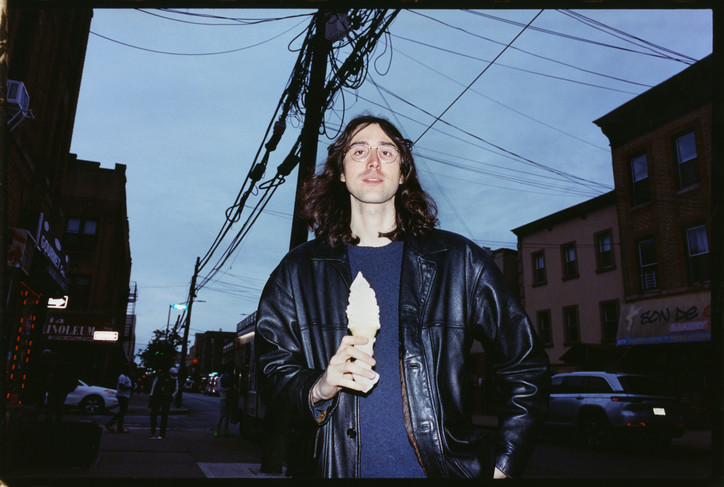
Watching A. G. Cook behind the strange, glass wall of the Viper Room’s green room in Hollywood, the phrase “A. G. Cook is making the impossible possible” kept repeating in my mind. Conspiring against the short attention spans that dictate music releases, Britpop is A. G.’s three disc, 24 track, sci-fi world that collapses boundaries in what feels like an earnest attempt to ensure pop music survives. The show and album alike live beyond the structures of time, simultaneously transporting listeners to the past, present, and future versions of A. G. Cook’s music. Throughout the performance, he transcends genres, livening the dance floor like a rave, bumping tracks like “Out of Time” and electrifying the stage like a rockstar with distorted guitar during “Bewitched.” Although I’d seen him DJ numerous times and witnessed his experimental opening set for Charli XCX, the way he commands his own headlining stage is otherworldly.
For his interview with office, we brought on his collaborator and friend, Caroline Polachek to chat with him about Britpop. If A. G. Cook were the omniscient, Holy Spirit of pop music, Caroline would be one of its major prophets, writing the scripture and deconstructing the presence of pop itself. From her iconic debut album, Pang, to her recent masterpiece, Desire, I Want to Turn Into You, Caroline delivers fantastical tracks imbued with sentimental lyricism. After subsequent nights playing Dungeons & Dragons and attending multiple Caroline and A. G. shows over the years, it’s become pretty obvious that A. G. and Caroline have a friendship that transcends their professional collaborations.
Caroline Polachek— Hey Alex. Where are you right now?
A. G. Cook— I am in LA, but I was recently on the Roadshow which took me to London and New York, very predictable. It’s funny because LA is so abstract, I feel like I’ve moved here 4 or 5 times. I often feel I just landed for the first time even though it’s been about 5 years.
Yeah there’s no connective tissue in the LA mental map. There’s all these islands that aren’t connected to each other. It takes 10 years before they start becoming one map.
And then by that point, I might not even be living here. That would be perfect.
Also, they say that people’s perception of time has to do with how much change there is, so by living in 5 different LA’s you’re just living longer.
Yeah, it feels like that honestly.
Long live A. G. Cook! Length is a really good place to start because this is a long album.
I know it is technically a long album, but it feels shorter than the other albums somehow. When I’ve gone back to listen to it myself occasionally, I think the three sections have such a clear goal and being 8 tracks, they’re these three mini albums that speak to each other. I was so aware of the idea while finishing the tracks. With 7G, it was done by organizing a graph by instrument or something. I really just let 7G happen. Apple was trying to be intentionally confrontational with U-turns and such. This is the first time I tried to make an album that flowed within its sections, and I can imagine someone enjoying specific parts. It’s somehow my most listenable album in a non confrontational way.
It’s three big bites.
Yeah that’s a nice way of putting it.
I want to talk through them chronologically. The first time I listened to the album, I didn’t know if it was a literal chronology of past, present, and future. I trusted that you’d be tricky and mix them up somehow, but listening to it in its own right, I was struck by how pure IDM Disc 1 is.
It’s basically all vocal chops. Charli is the only person who sings in “Britpop,” and she’s essentially singing a vocal chop. “Heartache” sort of has a vocal line, but that was done synthetically. Disc 1 definitely has that IDM influence and it’s represented by vocal chops. No lyrics allowed.
“Luddite Factory Operator” is such a huge flex as a track.
Why do you think that? I’m sometimes worried about that one.
It has so much scope, in how playful it is. From a listener’s perspective, that’s the most rhythmically complex track.
Yeah well “Luddite Factory Operator” is even sadder. A lot of the track names are quite emergent. You know what’s funny? For a while that track was called “Butterfly Net” but then I realized you have a track called “Butterfly Net” which actually didn’t scare me from naming it that.
No, no that would have been perfect. That’s great.
I had this idea of it in a completely different way. In my mind, butterflies are a useful symbol for the past, present, and future. There are so many puns you know like symmetry, butterfly effect, all that stuff. It’s kind of a folkloric creature that has all these other insinuations. We do use it in the “Soulbreaker” video. The magic is represented by these butterflies as they get spliced open.
Also butterflies have three distinct stages in their life.
Exactly that’s the other one. I kind of had it as a sort of allusion, and I ended up calling a different track “Butterfly Craft” The original idea of "Butterfly Net" turned into the World Wide Web, Witchfork, Wandcamp, and Wheatport. As I was making the ideas more and more intricate, I was already wanting to have something with assembly line chops and luddites in it. I wanted something that also stood for LFO from a synthesis point of view. I just let these things happen. I have a ton of personal references and eventually it becomes overbearing. Musically, I was worried about it at some point. I DJ’d it a while ago, and I had it as part of my set. I made it at a time when I started to enjoy making longer tracks as well, so songs like ”Silver Thread Golden Needle '' needed to be longer while others didn’t.
Well “Silver Thread” I was lucky enough to see you play in a different incarnation when you were making source material for the Eckhaus Latta fashion show.
It was mainly made in its entirety for Eckhaus Latta because the brief is a 10 minute walk. I knew it wouldn’t be thrown away. Whenever I have to do a commission, support slot, or a DJ set, I always make edits of songs. Actually, when I was doing my DJ support stuff for you in the Pang era, I remember doing an edit of "Click" by Charli which became “C2.0” on how I’m feeling now. “Britpop” also came from edits of other stuff. Usually if the track works well, I’ll just keep exploring the tracks until it’s given a life of its own.
I hear this especially hearing Cecile [Believe]’s vocal chops and not exactly being able to identify what word from “Show Me What” it is, but feeling the emotion from the song in it. Also, feeling a bit of “XCXOPLEX” and listening to all the synths go back. It’s the DNA rather than the form from your past works.
Exactly that’s why vocal chops are interesting and synthesis is interesting to me. It’s about making the tracks not feel like solid tracks, but closer to a performance. That’s why I like DJ edits and covers. All of these things make a track feel a little more alive. I use this idea of tracks being in conversation with other tracks. It’s a big part of why I’m interested in music in general. Not only is it time based, but there are so many other considerations. It’s a little memory you have to put into context. That’s why so many songs I’ve worked on have these wild outros. I think by that point in the track, it’s so satisfying to see how far I can push a listener by the end once we’ve gotten to know each other.
Yeah there’s definitely a bit of time travel. I almost had a reverse thought when listening to Disc 1. Obviously there’s a bit of a joke when petitioning for all this high tech music as the past, but I felt really emotional about it. Maybe there was a subtle implication of aspiration. Maybe the texture of technology is something that’s been sort of a siren song. I was recently looking at the Solomon seals. On a purely graphic design level, I was thinking how they almost look like charts of cells or different kinds of scientific diagrams.
Someone brought in the Lesser Key of Solomon to the shows in London to sign. I did my most elaborate signature on it and did a sigil seal on the front page with the words “Britpop” in a ring, but yeah that’s so true, I’m so interested in those anachronisms, when you see something from an older era that has a trace or DNA from something contemporary. It’s how these things communicate across time. It’s very real.
Beyond the synchronicity of it, it’s recognizing how delicious the look and feel of the future is part of innate human desire. I wanted to ask you what your relation to aspiration is in general — do you consider your music aspirational?
Yeah, specifically with Disc 1, on top of the past always feeling shiny, it’s quite literally because I was thinking of when I was making tracks in 2012 - 2014. Just before PC and as it was sort of happening in its early club nights. I was really wide-eyed and genuinely trying to make music that I thought was danceable pop music. In a nice way, I was more innocent, not knowing about the music industry. It was fun for me to see if I could explore the language without doing it in a purely nostalgic way. In a nerdy way, more synthesis techniques, doing things without a computer, or even doing it in a way that’s better executed. Can I take some of the old and show that there has been some passing of time as well as showing tribute to it?
I see people bring up one of my very first interviews I ever did, and loads of what I’m saying is really similar. Even though I had a lot to learn about the mechanics in the industry, in terms of the zoomed out ideas, I was talking about the ambiguity between bedroom production vs slick pop stuff and the performance and theater of these things and also the complexity of it. So much of my attitude, even with PC, is trying to engage with the present. It’s not futuristic or retro. I’m using things like nostalgia as a tool to try and come to terms with what’s going on right now with music. It’s a tool for me to deal with post-streaming landscape and a world where there’s 150K track uploads a day. Is there something I can learn from my 23 year old self when none of that even existed?
I really like what you said about being so fixated on the present because that kind of unlocks something about Disc 3 for me. That’s actually my favorite. It feels like a piñata that’s being cracked open at the end where there’s a real fusion of the ideas introduced in the first two discs.
It’s funny because I’ve seen people say things such as: “shouldn’t ‘Pink Mask’ be on Disc 2?” and that’s kind of the point! The songs aren’t meant to be severed from other discs. There were so many times I thought songs could get moved around, but in the end, I would decide to change things up production wise to lean into the idea of which disc it would live in.
It all points back to the cosmic joke that the future is actually the present. Any conceptions we have about the future are actually just total portraiture of where we are right now.
That’s why it’s interesting reading sci-fi from different eras. It feels a bit futuristic, but sometimes there are objects in it like a payphone. Psychologically, it is a window into that exact time it comes from. Any kind of future / sci-fi stuff is a representation of the present. I was trying to summon something futuristic with those tracks because each one of those makes me a little uncomfortable or unresolved.
I’m not saying Disc 1 and two are nailed, but Disc 3 has tracks that are more experimental and genre ambiguous for myself. Disc 3 I had to question myself and in the end finished most of them not being 100% in the knowledge that it was the right thing. It reminded me of moments in 7G. “2021” or “Crimson and Clover” did the rounds and resonated with people, but I had no idea what to do with them. “Out of Time” was finished last. I was still making it while mixing Disc 2 in Mike Bloodpop’s studio. He has so many modular synths that I don’t know how to use. I really hate sequencers especially when they’re connected to other sequencers. The sounds coming out were genuinely so out of time and I was recording it not knowing its BPM. That process in itself, became so fascinating. I wanted to wrangle this out of time material and give it a four to the floor thing and create tension.
I hate sequencers too and I think it has something to do with commitment. I think I’m a classic millennial that likes to have as many options until the very end as possible. There's an interesting philosophical relationship between the kind of commitment that a sequencer would put you in, and also how it is being a dungeon master in Dungeons & Dragons where you have this narrative that you’re stuck with and you have to sequentially add to them. With everything provided, you just have to work with. I’m outing you, by the way, as a killer DM.
I know I need to get a game going again. There’s a lot of talk about me being sort of the master of dungeons but I’ve been really busy. What’s been nice about D&D and the scene around it, aside from the fantasy, memorabilia and some of the videos and lyrics, is this idea of letting go of control in some way and having faith in it just being interesting. I'm not someone who's constantly improvising in my music, I'm not always jamming. I love the idea of embracing a bit of “yes and” kind of chaos into something. I think the Disc 3 tracks really have that.
I was really feeling while listening to this album, mostly in the car, that although it uses so much of the electronic language of club music, it's by no means just a club album. Obviously, you're going to do all sorts of edits of this material that are going to rock out so hard on festival main stages, throughout the whole summer, but the record feels like it's built for journeying, like for driving in a car or for gaming. There's a kind of thrilling discovery, and wonder. Going back to the live show, by presenting it in this format, where it's hybridized with rock, it stays very true to this idea of journeying.
The live show is all about the extreme dynamics. It started to feel good in rehearsals when I thought, “Is this setlist even possible?” There's moments in the set, where it feels a bit risky, but I like that. It's a really nice thing to do with an audience. I'm DJing my own weird edits of things I've made. I'm not traditionally mixing or using headphones, the audience hears what I hear, but that doesn't stop me from trying to go straight into something else. That's genuinely what I enjoy when I see electronic music performed. It's also why I struggle to get into something like techno, but at the same time, I'd find the use of the exact same materials thrilling because it's chaotic.
I think you sort of just hit the nail on the head. Something that I think is special about how you work: In all the times I've had in the studio with you, you don't really tend to use the words good or bad. You don't think about music as objectively good or bad.
I think that's a trap, isn't it? When I'm even listening to random music on the radio, I feel I can always pull from songs I hear. I can find almost anything interesting, basically. Yeah. So that's really a blessing.
Yeah, I was gonna say that to you. There's not a good or bad spectrum. It's an interesting versus interesting spectrum.
I saw this guy, Graham Harman, talk about object-oriented ontology, whatever, I'm going to fast forward. But what he said that interested me is that the opposite of beauty isn't ugliness, it's the literal, right? If something is just posited as one thing, you know? And I really agree with that. I don't see the spectrum of good or bad in that way. Music that is overconfident or slick can be a bit dull to me. On the contrary, anything that is about layering or questioning is objectively beautiful. It's why we can find nature beautiful, because all this stuff is going on. Beauty is actually related to this layering. A kind of battle against the literal.
This also brings me to very selfishly ask about my favorite song in the album, which I think has a lot to do with what you're just speaking about. I also find it in very non-literal terms, the most beautiful song, which is a song called “Pink Mask.” It kind of gives me goosebumps, because I think it's one of the only songs that you've made that gives me this really strong sense of arrival and maybe it's that the lyrics are really describing this, this encounter of arriving and asking someone to remove their pink mask. There's something terrifying about asking someone to take the mask off because on one end, there's so much risk in that question and so much anticipation in what you're gonna experience. It feels kind of religious and also so theatrical and the tactility of the frost on the glass. I just wanted to ask you about that song in general.
It's so over the top that one and I think I've always liked it, but I remember it felt like a bit of a risk. A lot of the inspiration also comes from spending time with Alaska and seeing her write lyrics first. She has a song describing being trapped in amber. “Pink Mask” doesn't sound to me at all like an Alaska song, but I remember being in Montana seeing her assemble things lyric first. I think that was a real experiment for me, because usually lyrics to me are a big afterthought. I really wasn't overthinking it, but I was trying to see if I can do something by writing first.
